Tour Operators
Tour operator is an organization, firm, or company who buys individual travel components, separately from their suppliers and combines them into a package tour, which is sold with their own price tag to the public directly or through middlemen, is called a Tour Operator .
More precise tour operators are primarily responsible for delivering and performing the services specified in a given package tour. They can provide these services themselves as some have their own cars and coaches, hotels, and other travel-related services or can obtain these from the other suppliers. That is why they are called manufacturers of tourism products .
Tour operators are sometimes called wholesalers but this is partially true because a wholesaler buys goods and services in bulk at his own account to prepare a tour package and then retails it through the travel agencies or directly to clients. However, a tour operator who has his own one or more tourists products components, (SOTC, TCI, Thomas Cook, Indo Asia KUONI formulates a new tourist product for example ‘ inclusive tours .’
Tour operators generally offer a variety of package tours to cater to the needs of different kinds of travelers.

Definitions of Tour Operator
Poyther (1993) defines, “tour operator is one who has the responsibility of putting the tour ingredients together, marketing it, making reservations and handling actual operation.”
Holloway (1992) stated that tour operations undertake a distinct function in the tourism industry, they purchase separate elements of tourism products/services and combine them into a package tour which they sell directly or indirectly to the tourists.
Today, tour operators have become highly competitive. They endeavor to achieve a high volume of turnover, and maximum International and domestic market share by effectively operating. Moreover, the success of many developed and developing nations as tourists destinations depend heavily on a tour operator’s ability to attract tourists, development and promotion of tourism plant, diversification of tourism product and their social responsibilities to develop a remote and backward area.
Types of Tour Operators
Tour operators are basically categorized into four types . These are categories on the basis of their nature of the business and its operations.
Inbound Tour Operators
Outbound tour operators, domestic tour operators.
- Ground Operators
These are also known as incoming tour operators . Technically, the operators who receive guests, clients/tourists, and handle arrangements in the host country are c alled inbound tour operators . For example, a group of American Tourists is coming through TCI Ltd. to India and the company makes arrangements and handles the group in India then TCI is called an inbound tour operator.
Incidentally, the inbound traffic to the country for the last two decades has been decreasing. Essentially the tour operators need to adopt innovative marketing strategies and should introduce a special interest tour to cater the special needs of Japanese, Americans, French and British people.
Tour operator who promote tours for foreign destinations, maybe business tour or leisure tour is called outbound tour operators . For example a group of American tourists going to a trip of India and Thomas Cook handle arrangement in America like as ticket reservation, hotel booking etc. then Thomas Cook is called Outbound Tour operators in the context of America.
Domestic tour operators are those who assemble, combine tourist components into inclusive tours and sell it to the domestic travelers. In general, these tour operators provide travel services within the tourist’s native country.
The domestic tour operators operate within the boundary of the home country and offer package tour to the travelers viz. Domestic inclusive tours or independent tours.
Ground Operators/Destination Management Companies
These are commonly known as handling agencies and their main function is to organize tour arrangements for incoming tourists on the behalf of overseas operators. Let us take the case of India as a destination that – has a varied culture.
When a tour operator himself promotes beach holidays, wildlife holidays, adventure tours, heritage tours at the different places, the difficulty arises. It is the ground operator then who by handling the incoming travelers in the same season but at different places ensures that the entire operation is according to the package tours or agreements.
Sometime when a handling agency is at a prominent tourist place i.e., Delhi and it has to make arrangements to Goa, then it contracts (If it has no office of its own) with a local operator (known as excursion agent) to handle the arrangement on his behalf.
Why Ground Operators?
Obviously, the tour operation companies do not have close contact with suppliers, governments, destinations and so on. It leaves no choice with the companies but to appoint handling agencies at the destinations. The main reasons are:
- Introduction of new products or plant to promote an exotic destination.
- Lack of Government regulations.
- Lack of personal contract.
- Language problem.
- The company cannot establish its own branch.
Recognizing the very fact that the reputation, performance, and profitability of tour company in its own market largely depends on the efficiency and effectiveness of ground operators, it has because necessary for the company to consider various factors before the selection of a handling agency, they are:
- Size of business
- Professional staff
- Length of business
- Area of operation/Product line
- Market share
Functions of Ground Tour Operators
Over the years of functions and activities of the destination, companies have changed drastically to cope with the changing environment of the tourism industry. In fact, today’s destination companies have become more professional and are bound to provide personalized travel services to the tourists. The following functions are performed by ground tours operators:
- Land arrangement
- Contract and Negotiate with other vendors
- Handling of Arrival and departure procedure
- Planning and organizing local package tour
- Escorting the tourists
- Providing market information
- Costing and pricing package tour
Practically, if we see the working of the travel agencies and tour operators in the industry we find that most of the organizations are performing different types of activities like the retail travel agency , wholesale travel agency, and tour operators.
The travel agency business is no longer an amateurism. Over the last two decades, the pattern and structure of travel agencies have changed to meet tough challenges in the international market. Today, small-scale agencies are finding the travel industry increasingly complex.
Thus, the small and medium scale travel agencies are disappearing or merging or falling instead of rising. On the other hand, a new concept has also emerged i.e. tour operation business . The tour operation business is new but a maturing business at the global level.
Functions of Tour Operator
A tour operator is an organization, firm, or person who is responsible for the actual arrangement of transport and accommodation facilities on any tour or vacations. They are also responsible for operating and providing vacation through contracting, booking, and packaging together of the various components of the tour such as hotel, transportation, meals, guides, optional tours, and sometimes flights.
A tour operator is like a service provider, providing the most convenient option for tourists to stay, visit, as well as leave from the city. A tour operator owns a high volume of travel services across carriers, services, and accommodation. Some most important functions of the tour operators are following as:
Planning a Tour
The most important functions of the tour operators are planning a tour. Tour operators plan a tour and make tour itinerary which contains the identification of the origin, destination and all the stopping point in a traveler’s tours. A prospective tour operator also gives advice to intending tourists in various types of tour programmes, which they may choose for their leisure or commercial travel.
Making Tour Package
Tour operator buys individual travel components, separately from there suppliers and combines them into a package tour. Tour operators make tour package by assembling various travel components into a final product that is called tour package which is sold to tourist with own price tag. Making tour packages is also an important function of Tour Operator.
Arranging a Tour
Tour operators make tour package and also arrange a tour according to tourist demands. Tour operators arrange the tour package and various tourists activities to provide the best experience to tourists/traveler.
Travel Information
Whatever the size of tour operators, it has provided necessary travel information to the tourists. This task is utterly difficult and very complicated. A tour operator must give up-to-date, accurate and timely information regarding destinations, modes of travel, accommodation, sightseeing, immigration, health and security rules about various permits required to travel in a particular area etc.
Reservation
It is a very important function of all type tour operators and travel agencies. Tour operator makes all the reservation by making linkages with accommodation sector, transport sector and other entertainment organizations to reserve rooms, and seats in cultural programmes and transportation.
Travel Management
Tour operators manage tour from beginning to the end of the tour. A tour operator has the responsibility to look after the finer details of a vacation or tour such as hotel, accommodation, meals, conveyance etc. Tour operators provide travel guide, escorting services and arrange all travel related needs and wants.
Evaluate the Option Available
Tour operators evaluate all available options to provide a unique or unforgettable travel experience to tourists during their journey. Tour operators evaluate the various options available for a tour package and provide best of them to tourists.
Tour Operators makes tour packages and promote them into various tourists markets at domestic as well international level. Tour operators promote a travel destination to attract a large group of tourists at domestic as well as international level. In the promotion of tourist destination, tour operators play a key role. Travel agencies or tour operators are called as image builder of a country.
Sales and Marketing
Tour operators do sales and marketing of tourist products. Tour operators buy individual travel components, separately and combine them into a tour package, which is sold with their own price tag to the public directly. Tour operators do marketing of tourist destinations and tourism product to attracts the attention of the tourists/travelers.
Taking Care of Glitch
Tours operators are also called handling agencies which handles tour package and take care of all the glitches and problems arises during a tour package. Tour operators fix the glitches and provide the best available alternative to tourists during their journey.
Importance of Tour Operators
Tours operators play a key role in the tourism sector. Tour operators create tourist products, promote them a finally sold them to tourists.
Tour operators provide the best and competitive price to the tourist. Tour operators negotiate with suppliers of tourism products such as hotels, airlines and provide the best possible price to the tourist. Tour operators buy tourist products in bulk and get huge discounts from suppliers. So that they provide tourist products at a cheap price.
Tour operators organized a tour in the best way. They personalize and make sure each and every component of the tour is well-taken care. Tour operators provide the best travel experience during a tour. Tour operators save tourists time and money.
Tour operators provide immediate support systems at the host country as well as a foreign land. When tourists travel to a foreign land and things get uncertain, maybe its a health or loss of documents and need to return back or change of travel plan. A qualified tour operator takes care of all these unseen events with efficiency.
Tour operator caters to the needs of tourists on the based on their taste of travel. Tour operator provides all the best available option according to tourist needs and demands
Difference between Travel Agent and Tour Operator
There is a lot of confusion about the difference between tour operators and travel agents what exactly makes them different. The main difference between a Travel agent and Tour operator are following as:
- A travel agent is a person who has full knowledge of tourist product – destinations, modes of travel, climate, accommodation, and other areas of the service sector. He acts on the behalf of the product providers/principals and in return get a commission.
- Tour operator is an organization, firm, or company that buys individual travel components, separately from their suppliers and combines them into a package tour, which is sold with their own price tag to the public directly or through middlemen.
- Tour operators are like wholesalers and travel agents are the retailers.
- A tour operator makes the package holidays up and the travel agents sell them on.
- Tour operator taking up the bulk of the responsibilities and his fee is obviously much greater than a travel agent.
- A tour operator has the responsibility to look after the finer details of a vacation or tour such as hotel, accommodation, meals, conveyance, etc.
The wholesale travel agencies may offer or operate the package tours or may specialize in developing tours for inbound as well as outbound travelers. They are often referred to as tour operators, but there is a difference between Wholesale Travel Agencies and Tour operators .
How do Tour Operators Work?
To unlock the tourism industry's business and leisure travel potential, you must understand how tour operators work.
From package holidays to bespoke tours, tour operators make memorable holidays. Whether you're a domestic operator focusing on your country's destinations or an outbound operator designing trips abroad, this guide is for you.
The Role of Tour and Activity Providers
At the heart of the travel industry, tour operators like you, whether inbound or outbound, design travel packages that simplify things for tourists. This involves meticulous planning of land arrangements, accommodation, tours, and transport.
As a tour company, you may specialize in specific types of trips, such as leisure travel or business trips, creating packages that cater to your target market's preferences.
What are the different types of tour operators?
- Domestic Tour Operators : Focusing on the domestic tourism market, these operators provide travel packages within their home country.
- Outbound Tour Operators : These companies design holiday packages for travelers visiting other countries, often incorporating international destinations into their itineraries.
- Inbound Tour Operators : Inbound operators cater to tourists coming into their host country, providing local insights and experiences.
- Ground Tour Operators : Often known as ground operators, these firms handle local arrangements in the destination country, often working in collaboration with other tour operators.
How do tour operators work with accommodation and transport providers?

Tour operators play a pivotal role in crafting the perfect travel experience, and a big part of this involves working closely with accommodation and transport providers. Here's a glimpse at how this collaboration typically works:
Building Relationships with Accommodation Providers
- Negotiating Rates : Tour operators negotiate contracts with hotels and resorts to secure competitive rates. This often involves bulk booking or agreeing on fixed rates for a certain period.
- Customizing Guest Experiences : They work with these providers to tailor lodging experiences that align with the overall theme of the tour, whether it's luxury, adventure, or cultural immersion.
- Ensuring Quality and Standards : Regular inspections and feedback mechanisms are put in place to ensure that the accommodation meets the expectations and standards required for their clients.
Partnering with Transport Providers
- Seamless Logistics : Tour operators coordinate with various transport providers, including airlines, bus companies, and car rental services, to manage the logistics of getting travelers from one point to another.
- Group Deals and Scheduling : They often negotiate deals for group travel and ensure that transportation schedules align seamlessly with the overall tour itinerary.
- Quality and Safety Checks : Ensuring travelers' comfort and safety is paramount, so tour operators regularly check the quality of vehicles and the reliability of transport services.
Creating Cohesive Travel Packages
By integrating accommodation and transport seamlessly, tour operators create cohesive and hassle-free travel packages. This integration is crucial in providing a smooth and enjoyable experience for travelers, where every aspect of their journey is well-coordinated and managed.
Adapting to Client Needs
Tour operators remain flexible and responsive to their clients' needs, often customizing aspects of accommodation and transport to cater to specific preferences or requirements.
To summarize, negotiating strategically, ensuring quality, and meticulous planning are crucial to the relationship between tour operators, accommodation providers, and transport providers. In order to deliver great travel experiences that aren't just fun, they must be safe, comfortable, and just right to match discerning travelers' expectations.
How do tour operators work with travel agents and OTAs?

Tour operators team up with travel agents and OTAs? It's like having the best of both worlds in the travel industry.
Here's the lowdown: travel agents are like sales gurus. They've got the skills to match your cool tour packages with travelers looking for their next adventure. It's all about personal touches and making travelers feel special.
Now, let's talk about OTAs – think big names like Expedia and Booking.com . These guys are your ticket to the global stage. They're not just about showing off your tours; they're about connecting you with travelers from all over, 24/7. Plus, with their smart marketing tools and the power of customer reviews (which, let's face it, are gold in our world), you're setting yourself up for some serious visibility and street cred.
Combining travel agents' personal selling charm with OTAs' global reach is how tour packages stand out in this competitive market.
Talking about creating packages, how can you work with accommodation and transportation providers?
How to create inclusive tour packages?

As a tour provider, crafting appealing and inclusive tour packages, also known as package holidays or package tours, is key to attracting travelers.
These packages bundle services like flights, accommodations, and transportation for a hassle-free experience. Here’s how you can create comprehensive offers:
- Understand Your Travelers : Know who you’re designing for. Are they families, solo travelers, or adventure seekers? Tailoring your packages to fit their preferences is crucial.
- Forge Strong Relationships with Suppliers : Collaborate closely with accommodation and transportation providers. Strong partnerships can lead to better rates and unique offerings, making your packages more attractive.
- Quality Over Quantity : When choosing hotels and transportation options, prioritize quality. A well-selected hotel or comfortable transport experience can elevate your entire package.
- Flexibility is Key : Offer flexibility in your packages. Options for room upgrades, transport preferences, or even alternative activities can make your package more appealing to a diverse range of travelers.
- Highlight Unique Experiences : Include special experiences travelers can’t find elsewhere. Unique local tours or exclusive access to attractions can make your package stand out.
- Transparent Pricing : Ensure transparency in pricing. Hidden costs discourage travelers. Clear, upfront pricing builds trust and satisfaction.
- Feedback Loop : Regularly gather feedback from your customers and adjust your packages accordingly. Continuous improvement based on customer insights can significantly enhance your offerings.
By focusing on these areas, you can create inclusive tour packages that meet but exceed the expectations of your travelers, ensuring memorable and hassle-free trips.
How do tour operators pay suppliers?
For tour operators, establishing and maintaining a solid financial relationship with suppliers — including accommodation and transportation providers — is crucial for a smooth and successful business and tour operation itself. Here's a look at how these payments are typically managed:
Advance Payments and Deposits
Tour operators often make advance payments or deposits to secure services well ahead of tour dates. This is especially common with hotels and special activities that require early booking.
Credit Facilities and Post-Payment Agreements
In some cases, tour operators may have credit arrangements with suppliers, allowing them to pay after the service is delivered. This requires a high level of trust and a proven track record of reliable payments.
Bulk Payment Contracts
For regular or frequent services, operators might negotiate bulk payment contracts. Under these agreements, they pay a lump sum for a specified number of services or bookings over a period, often at a discounted rate.
Net Rate Agreements
Suppliers may offer net rates to tour operators, which are discounted prices exclusive of commissions. The domestic tour operators then mark up these rates when selling to customers, and the difference forms their profit margin.
Direct Billing for Services
In some collaborations, suppliers might directly bill the tour operator for services rendered, usually after completion.
Electronic Payments and Wire Transfers
With the digitalization of financial transactions, most payments are now made electronically. This ensures quick, secure, and traceable transactions.
Managing Currencies and Exchange Rates
For international tours, operators must adeptly manage payments in different currencies, considering exchange rates and transaction fees.
Contingency Funds for Unforeseen Expenses
Operators often set aside contingency funds to cover unexpected costs or last-minute bookings, ensuring that the tour runs smoothly without financial hiccups.
Why is the booking process so important for selling tours?

The booking process is crucial in the tour industry for several key reasons:
- First Impression Matters : This initial interaction sets the tone for customer experience and expectations.
- Ease Equals Sales : A simple, user-friendly booking system encourages more purchases.
- Trust Building : A smooth process builds trust, showing customers that they’re dealing with a professional operator.
- Upselling Opportunities : During the booking, there’s a chance to offer additional services or upgrades, enhancing the experience and increasing revenue.
- Data for Personalization : The information collected can be used to tailor future offerings and improve service.
- Effective Communication : This stage is vital for conveying key tour information and ensuring customer understanding.
- Reputation Impact : A positive experience can lead to recommendations and positive reviews, while a negative one can harm the operator's reputation.
- Resource Management : Understanding booking trends helps manage tours and resources.
In short, the booking process isn't just about securing sales; it's about shaping the entire customer journey, from first impressions to post-tour feedback.
Tips for Operators
Invest in a good, easy-to-use, and cost-effective booking software solution. Granted, it may incur some fees on your part, but think of the heavy lifting it does for you.
It does more than take reservations and bookings. It saves you tons of time with manual tracking, guest follow-up, and ticket management. It also eases the customer journey from point one to post-tour feedback.
Booking software solutions like TicketingHub save you stress and ease your guests. It charges 3% only for successful bookings.
Trusted by Egypt Sound and Light Shows, The Immersive Gamebox, Secret Food Tours, Sipsmith Distillery , and a hundred folds more - this software solution is jam-packed with time-saving features in an easy-interfaced navigation.
Whatever software solution you pick, aim for the solution that saves you time from needless complexities in design and usability - all while helping you stay profitable and leaving your guests satisfied right from the booking page.
Conclusion: Making Great Tours Happen
In wrapping up, it's clear that being a tour operator is about connecting the dots to create amazing travel experiences. Whether you're showing off the best spots in your own country or taking people on adventures abroad, the key is in the details – from picking great hotels to organizing smooth rides.
Your partnerships with local travel agencies, agents and OTAs are super important too. They help you reach more people and make sure your tours stand out. And when making tour packages, remember to listen to what travelers want and keep things flexible and interesting.
Don't forget, managing your money well, especially when paying for services, keeps everything running smoothly. And the booking process? That's your chance to make a great first impression and keep things hassle-free for your customers.
So, there you have it – mix in a bit of planning, a dash of good relationships, and a sprinkle of creativity, and you're on your way to creating trips that travelers will love. Happy touring!
FAQ Section
How important are tour operators.
Tour operators play a pivotal role in the tourism industry. They create and organize tour packages, catering to both business and leisure travelers. These packages simplify travel arrangements, offering hassle-free travel.
Tour operators are the key architects of memorable trips, ensuring travelers can explore various destinations easily.
What is the life of a tour operator?
Tour operators plan meticulously and collaborate with various stakeholders. They work closely with outbound and inbound tour operators, accommodation and transport providers, and even travel agents and online travel agencies (OTAs).
Their goal is to create appealing package holidays, manage travel arrangements, and provide tourism products that meet their target market's preferences.
What are the strengths of tour operators?
Tour operators have several strengths, including the ability to create inclusive tour packages that simplify travel for tourists. They can specialize in various categories, such as business or leisure travel. They can also collaborate with distribution partners like travel agents and OTAs to reach a wider audience.
Tour operators leverage market data to sell directly to their target market, offering tourism products that cater to different preferences.
What's the difference between a tour operator and a travel agent?
Tour operators and travel agents serve different roles in the travel industry. Tour operators design and create tour packages, manage travel logistics, and provide tourism products.
Travel agents, on the other hand, act as intermediaries between travelers and tour operators or suppliers. They assist customers in choosing and booking the right travel options, including tours created by tour operators, but they don't create the tours themselves.
Get the latest news and stay in touch with the industry secrets.
By clicking "Subscribe", you agree to our Privacy Policy and the data we do collect.

Tour Operator Guide: How to Improve Customer Service

Tour Operator Guide: How to Maximize Bookings During Euro 2024

Industry Report for Attractions: Key Strategies for 2024

Why Your Business Needs a Travel Booking Software Now
Keep Reading

Navigating Success: Essential Business Tips for Tour Business Owners
We've compiled a comprehensive guide of essential business tips tailored specifically for tour business owners.
Discover how tour operators create seamless travel experiences through great partnerships, flexible packages, and easy booking processes.
TripMatrix Product Features
Manage the entire travel agency back office from start to finish. TripMatrix allows you to add your products and services, build trips, create and promote offers, payment processing, and much more.
Product Features
Contacts and Accounts
A simple way to add and manage contacts and accounts
Offers and Bookings
Create, send, receive, track predefined and tailor-made offers
Build dynamic itineraries by utilizing advanced route planner
Products and Services
Add and manage all your products and services
Web Booking Engine
Use WBE to promote your offerings worldwide
Travel Tech Insights, Events & Trends
Discover the latest trends and events in the travel tech industry.
TripMatrix Blog
TripMatrix Events
Video Tutorials

Streamline Your Travel Agency Operations with TripMatrix

Elevating Your Travel Agency with Smart Marketing and SaaS Solutions in 2024
All about TripMatrix
Learn more about Tripmatrix and find open positions, company culture, current team, etc.
Discover 5 Types of Tour Operators
Mar 15, 2023
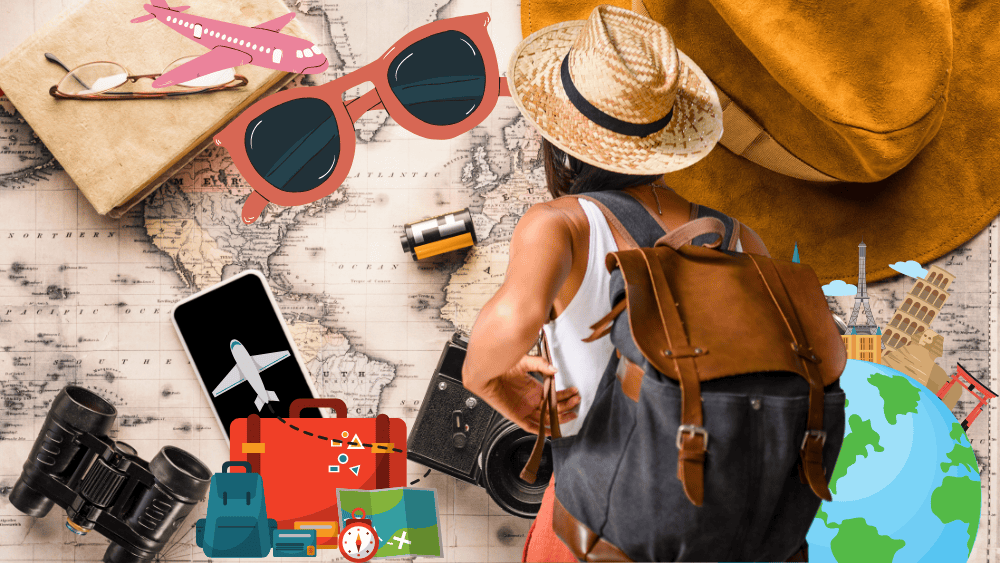
Starting a tour operating business can be an exciting and rewarding experience. However, with so many different types of tour operators out there, it can be challenging to decide which market to pursue. In this blog, we will provide guidance on the different types of tour operators available and help you choose the right market for your tour operating business.
Inbound Tour Operators
Definition of Inbound Tour Operators; An inbound tour operator is a company that specializes in organizing tours and activities within their country, working with travel agents to create packages for international visitors. They are responsible for organizing itineraries, accommodations, transportation, and activities for incoming tourists.
Their role in managing domestic tours and activities; they welcome international travelers and assist them with planning their travel to suit their needs using their country-specific knowledge.
Advantages of working with an inbound tour operator; They use their local knowledge to create a seamless, stress-free travel itinerary for their customers.
Outbound Tour Operators
Definition of Outbound Tour Operators; An outbound tour operator is a company that works with clients who are traveling outside of their home country. They offer packages that include flights, accommodations, and activities. For example, if a US resident is planning a trip to Asia, an outbound US tour operator will take care of all the details.
Their role in managing international tours and activities; They work with local travel partners in different countries to provide travelers with a complete travel experience.
Advantages of working with an outbound tour operator; They allow customers to work with someone from their home country to plan and book international travel itineraries.
Domestic Tour Operators
Definition of Domestic Tour Operators; A domestic tour operator specializes in organizing tours and activities within a specific country. They cater to locals who want to explore their own country.
Their role in managing tours and activities within a particular country; They cater to locals who want to explore their own country and have specialized knowledge on trips and activities that locals don’t often experience.
Advantages of working with a domestic tour operator; Domestic tour operators often cater to native travelers who want to experience new areas within their home country. They typically have a collection of specific holiday and weekend trips that are ideal for travelers looking to book around their work and family schedules.
Specialist Tour Operators
Definition of Specialist Tour Operators; A specialist tour operator is a company that focuses on a specific niche or interest. They create packages that cater to travelers with specific interests or needs. Some examples include adventure, luxury, cultural, or wildlife travel.
Their role in managing niche travel experiences; They specialize in creating tour packages that match travelers with experiences that they are particularly interested in or wanting to learn more about. They work with local partners to create these unique offerings.
Advantages of working with a specialist tour operator; They offer tour packages specifically crafted for different interests and often allow the traveler to learn more about their destination than other options.
Ground Operators
Definition of Ground Operator; Similar to domestic operators, ground operators work on travel itineraries within their home country. The difference is that they specialize in providing local services on behalf of other travel agencies and operators to the clients throughout their trip.
Their role in managing tours and activities; They work with travel agents to create customized travel itineraries for groups and individual travelers. Their services may include directly taking care of a client’s transportation, accommodations, meals, and activities during their trip.
Advantages of working with a ground operator; They provide a high level of support and assistance throughout the trip, ensuring that everything runs smoothly and according to plan.
Conclusion:
In conclusion, choosing the right market for your tour operating business depends on your interests, expertise, and resources. Whether you choose to specialize in inbound or outbound tours, domestic or international travel, or a particular niche, there are endless opportunities to create unique and memorable travel experiences for your customers. With the guidance and support of TripMatrix, you can start your tour operating business and pursue the market that best suits your vision and goals as well as connect with other operators. Discover how TripMatrix tour operator software is helping true operators aound the world to manage their travel business more efficient.
Recent Posts


Types of Tour Operators
Introduction.
We know that the travel market is vast, and it can be confusing trying to navigate the different types of tour operators and their offerings.
Whether you are a tour operator trying to choose which market to specialise in or a traveller looking for assistance with your next trip, we’ve got you covered!
In this blog post we will walk you through the main types of tour operators and explain how each one can help their customers to plan and book their dream trips.
What is the role of a Tour Operator?
Tour operators help travellers to design, plan, book and enjoy their trips, assisting with the entire customer journey from beginning to end.
They often combine components from several different companies such as airlines and accommodation providers as well as extras such as activities, transfers and entertainment, transforming them into tours which are sold to the public as a package .
The tour operators themselves are also responsible for the marketing of their travel packages, a topic that we covered in ‘ the tour operators’ guide to creating an exciting marketing strategy ’, and should be available for direct communication with the customer throughout the entire process.
Wondering what the differences are between each tour operator?
Well, we’re here to help.
While there are several different types of tour operator, the main ones include:
- Inbound Tour Operator
- Outbound Tour Operator
- Domestic Tour Operator
- Ground Operator
- Receptive Tour Operator
These companies can also focus on the mass market or can specialise on a niche group, such as eco-tourism, adventure sports or food tours.

Inbound Tour Operators
As we explained in ‘ Outbound vs Inbound Tour Operators ’, inbound tour operators are locally-based companies that work by bringing visitors into a specific country or destination , often partnering with other businesses such as accommodation and transport providers in order to offer customers package deals.
Inbound tour operators are also sometimes referred to as destination management companies, aiming to promote their destination as a whole to incoming travellers and assist them with all aspects of their trip. This also requires a knowledge of overseas markets and the needs and interests of different types of customers in order for them to promote their tours effectively.
Outbound Tour Operators
While inbound tour operators bring tourists into a country, outbound tour operators market to travellers in their own country and offer tours in international destinations .
When creating tour packages, outbound tour operators usually focus on specific countries, destinations or regions of the world, and also partner with businesses in the host country to provide customers with convenient and comprehensive packages.
A good example of an outbound tour operator is TUI , one of the world’s largest travel companies that works mainly by selling tours to overseas destinations and who is also one of our customers.
Domestic Tour Operators
As the name suggests, domestic tour operators put together packages for domestic travellers – those who are travelling within their native country . This type of business aims to promote travel within their own country, and offers packages in popular destinations.
Haven Holidays is a domestic tour operator that focuses on the British market by offering breaks in its self-catering holiday parks in an array of coastal destinations around the UK. These types of tour operators frequently offer family-friendly activities and diverse entertainment options for those who want to enjoy weekend breaks or summer holidays within their own country.
Ground Operators
Like domestic tour operators, ground operators also work within their own country . However, ground operators usually work on behalf of inbound or outbound tour operators and are the ones that provide the actual travel service in a destination, helping to organise and assist tourists.
This type of tour operator is especially useful for tours in far-flung destinations where it can be difficult to plan itineraries without local knowledge, expertise and contacts. Ground operators are likely to be on hand in the destination itself to organise transfers, negotiate special rates with accommodation providers or find the best local tour guides.
Receptive Tour Operators
Receptive Tour Operators provide tourism products , whether in the form of packages or single components, to other tour operators or travel agents . They do not sell directly to the public and usually follow a structure similar to a wholesaler.
RTOs are experts in their market , and help their customers to find the best accommodation providers, services and activities in their chosen destination. This type of tour operator makes money by adding a percentage rate to the final price that their customer is selling the travel product for.
For example, a receptive tour operator may work with an outbound tour operator by providing them with travel packages for a specific destination. The outbound tour operator then sells this tour package to its customers and adds an extra fee to the cost, which goes directly to the receptive tour operator.
Technology for Tour Operators
Here at Nezasa , we provide tour operators with a cutting-edge product that allows them to plan, book and customise their customers’ trips with ease. The use of a software solution like ours is an excellent way to simplify aspects of your business, allowing you to focus on the customer themselves.
Our TripBuilder software is a unique, seamless and integrated solution, designed to help you efficiently create hyper-personalised and flexible itineraries for your customers.
To find out more about our innovative products, make sure to sign up for our next webinar here .

What is a Tour Operator?
Embarking on a journey to a new destination is an exciting adventure that brings with it the promise of discovery, cultural immersion, and unforgettable experiences. While the allure of wanderlust beckons, the complexities of planning a seamless trip can sometimes be daunting. This is where tour operators step in to create a bridge between your travel dreams and reality. In this blog, we’ll delve into the world of tour operators, highlighting their benefits and comparing them to traditional travel agencies.
A tour operator is a travel professional or company that designs, organizes, and sells comprehensive travel packages that include various elements such as transportation, accommodation, activities, meals, and more. These packages are carefully curated to offer travelers a hassle-free and well-structured experience. Tour operators work closely with local suppliers, hotels, transportation providers, and guides to ensure that every aspect of your journey is thoughtfully planned and executed.
The Benefits of Choosing a Tour Operator
Expertise and Local Insight: Tour operators possess in-depth knowledge of the destinations they offer. They have the ability to craft itineraries that showcase the must-see attractions as well as hidden gems that might go unnoticed by the average traveler.
Saves Time and Effort: Planning a trip can be time-consuming and overwhelming. Tour operators take the burden off your shoulders by handling all the logistics, from booking accommodations and arranging transportation to organizing activities.
Tailored Experiences: While group tours are popular, tour operators also offer customized itineraries for travelers who prefer a more personal touch. They consider your preferences, interests, and travel style to create a journey that suits you perfectly.
Seamless Transitions: Moving from one location to another can sometimes be tricky, especially in unfamiliar places. Tour operators ensure smooth transitions between destinations, taking care of transportation and minimizing any potential stress.
Access to Exclusive Experiences: Tour operators often have established relationships with local guides and suppliers, granting you access to unique experiences that might not be available to independent travelers.
Safety and Support: Traveling to a foreign country can present unexpected challenges. Tour operators provide a safety net, offering assistance and support in case of emergencies or unforeseen circumstances.
Tour Operators vs. Travel Agencies
While both tour operators and travel agencies play pivotal roles in the travel industry, they differ in their approach and scope:
Tour Operators: As discussed, tour operators focus on crafting comprehensive travel packages that encompass various aspects of a journey. They specialize in creating cohesive experiences, handling everything from accommodations to activities.
Travel Agencies: Travel agencies primarily assist with booking individual components of a trip, such as flights, accommodations, and car rentals. They offer flexibility but often require travelers to assemble these components into a coherent itinerary themselves.
Why Choose a Tour Operator?
Holistic Experience: Tour operators offer a complete, well-rounded experience that takes the stress out of planning.
Local Insights: Their expertise ensures that you gain insights into the culture, history, and lifestyle of your destination.
Time and Effort Savings: With all the logistics managed for you, you can fully immerse yourself in the journey without worrying about details.
Peace of Mind: The support and assistance of a tour operator provide a safety net, enhancing your sense of security while traveling.
Exclusive Access: Tour operators often provide access to unique experiences that are carefully curated to enhance your journey.

In the realm of travel, tour operators emerge as true architects of unforgettable experiences. With their dedication to crafting seamless journeys, local insights, and personalized touch, they stand out as ideal partners for turning your travel dreams into reality. When considering your next adventure, think beyond the conventional travel agency and embrace the benefits of choosing a tour operator. Your voyage awaits – let Juniper guide you on a path to remarkable discoveries.
Thanks for checking out Juniper Tours’ Travel blog! We hope you enjoyed your read and if you’re looking for more content please check out our other blog posts ! If you’re looking for help planning your next travel adventure then book a FREE travel consultation with one of our Travel Specialists today!
Schedule a Free Travel consultation today!

© Copyright 2024 Juniper Tours.
Privacy Policy
Subscribe to our newsletter for exclusive offers and updates.

© Copyright 2023 Juniper Tours.

Feel free to contact us anytime!
- 877-774-3256
- Email us Here
- 1 Central St, Suite 205 Middleton, MA 01949
Speak with our Travel Specialists
Ready to Schedule a FREE Travel Consultation?

We’ll send you our free full color travel guide. Just fill in the form below
Which Type of Tour Operator are You?
Let’s be honest – the tour operator business is highly competitive as companies try to get a large share of the international and domestic markets they operate in. In order to better navigate the landscape, you need to understand where you stand in that market.
We all know that a tour operator is one who packages key components (or all) of a trip, markets it, sells it to a traveler or tourist, and handles the entire tour operation.
But do you know exactly which type of tour operator you are?
Having clarity on this question will help you identify key partners to work with (like DMOs or hotels) and make better business decisions overall. As a result, you’ll be able to curate better tour packages and run your entire tour operation smoothly, efficiently and successfully.
This is why we’ll cover the different types of tour operators below (plus – we’ve attached a handy infographic at the end for your reference).
So, let’s get to it – which type of tour operator are you?
Types of Tour Operators
There are five main categories of tour operators that you could fall into: inbound tour operators, outbound tour operators, domestic tour operators, receptive tour operators, and ground tour operators. Let’s find out which one of these five you fall into.
Of course any tour operator cannot be fully successful without a booking system that will automate all reservation processes and allow them to generate more revenues. If you still haven’t got a booking system, try Regiondo , the most popular booking system in Europe designed to streamline your booking process. Book a demo with Regiondo experts to learn how your business can leverage booking system.

Inbound Tour Operators (AKA Incoming Tour Operators)
Inbound tour operators bring tourists into a country as a group or via individual tour packages. They handle all arrangements in the host country; and the types of tours they curate are specifically for non-residents touring the country.
Let’s look at an example.
If a group of Italian tourists want to explore Germany, then the tour operator in Germany who handles all the arrangements for the tour is known as an inbound tour operator. So, inbound tour operators are locally based and offer tours that cover their own country.
Most inbound tour operators hire local travel agencies for things like airport pick-up and drop-off; form partnerships with local hotels and businesses; and have key partnerships with other types of tour operators (who help them run tours on the ground).
Outbound Tour Operators
Unlike inbound tour operators, outbound tour operators work within their countries to take travelers to other countries. They are tour operators who market their tours for international destinations, either for business or leisure travel.
Let’s say, for example, that a group of Canadian tourists are planning a trip to Italy. Then the tour company in Canada that handles all the ticket reservations and hotel bookings is the outbound tour operator.
To further simplify things, outbound tour operators design and package tours for tourists in their home country to visit an international destination.
Now, most outbound tour operators choose to specialize in specific destinations: either a destination that is “trending” or one in which they have particular expertise and distribution partners. They often work with other tour and activity providers in the destination when designing their travel packages.
Domestic Tour Operators
Domestic tour operators are those that put together inclusive tour packages and sell them to domestic travelers. In other words, they are tour operators who provide travel packages and tours within a tourist’s native country.
Domestic tours usually involve residents of a specific country traveling within that country. They can visit national parks, scenic areas, hospitality tours, city tours , train tours, etc. Since there are many options that tourists can choose from, domestic tour operators often combine several tourist components into an inclusive package that they can sell to travelers within the boundary of the country.
Domestic tour operators form key partnerships with other tour and activity providers in order to attain a larger share of the domestic tourism market.
Receptive Tour Operators (RTOs)
Receptive Tour Operators (RTOs) provide tourism products to tour operators in other markets (as a business-to-business relationship).
Specifically, RTOs sell tourism products, whether they are sold in a tour package or alone, to tour operators and/or travel agents . They are essentially wholesalers and they don’t sell directly to the public.
So how do they make money?
They add a percentage rate (or fee) to the final price that the tour operator is selling the product or service for. When a travel agent buys the tour product, they incur the RTO’s fee in the final price. In that sense, RTOs do not charge commission. They simply market the tourism product and add their fee to the final product price.
Another key characteristic of RTOs is that they are experts in the region they operate in; and know much more than just the hotels and types of tourism activities that are offered in the region. As such, RTOs to help other tour operators identify things like hotels, services and design itineraries in regions they are not familiar with.
Ground Tour Operators
Ground tour operators operate domestically. They are however different from domestic tour operators in that they organize tours for incoming tourists on behalf of an inbound tour operator (and sometimes, outbound tour operators).
Let’s look at an example to better understand the role they play.
Italy will be the destination in this example. So, here’s how it works:
An inbound tour operator designs and promotes beach holidays, adventure, and heritage tours in different parts of Italy. Problem: the inbound tour operator doesn’t have offices across Italy. The inbound tour operator also doesn’t have close contacts or partnerships with suppliers and key agents in certain parts of the country. So, they consult with ground tour operators.
It is the ground operator that will handle the incoming tourists at those various destinations around Italy. They oversee land arrangements; negotiate with and contract local vendors; coordinate arrivals and departures; plan and put together local tour packages; escort tourists; provide market data; and cost and price tour packages. Overall, it is their duty to ensure that the entire trip goes smoothly based on the package tours and agreements.
You may know ground tour operators as “handling agencies” because they organize tours for incoming tourists on behalf of overseas tour operators.
Wrapping Up
Back to the question we asked at the very beginning: which type of tour operator are you? Now that you’re better informed to answer that question, you can also start thinking about ways to improve your distribution and marketing channels based on that answer.
The next step is to figure out who your key partners are and strike up deals to propel your business forward.

Stay updated with Regiondo by signing up for our Newsletter

Get a personalized demo or create your free account now
Take your business to the next level with Regiondo - it's free to get started and you don't need a credit card.

Who is a Tour Operator? Know Roles and Responsibilities
If travel destinations and tourist places are something that interest you or fill you with enthusiasm, probably then, you must know about a tour operator. Tour operators advise customers about different travel options. They organize tours for individuals or different groups of travelers. As professionals, they prepare tour itineraries, and tour packages and coordinate with vendors for your holidays.
In this write-up, we delve into a tour operator’s roles and discuss the necessary skills, roles, and education qualifications for the job.
Who is a Tour Operator?
A tour operator is someone who belongs to the hospitality industry. He organizes tours and helps customers during trips so that they have positive reviews. Advising customers on different tour packages based on their budget and interests, and handling all logistics of a tour, such as booking tickets and accommodations, are some basic roles assigned to them.
Tour operators generally work for travel agencies or tour companies A tour guide will accompany tourists on their trips, but tour operators are solely available to answer their questions. They provide detailed information about tourists’ itineraries.
Types of Tour Operators
Here are some types of tour operators who can help you plan your holidays better and make them memorable!
1. Domestic Tour Operators
Domestic tour operators provide tours and travel services within their own country. They serve tourists who desire to explore different regions or attractions within their country.
2. Inbound Tour Operators
These operators serve foreign tourists visiting their country. They plan and organize tours within their own country, and provide services such as transport, accommodation, guided tours, and activities.
3. Outbound Tour Operators
Outbound tour operators organize tours for residents of one country traveling to another country or countries. They arrange the trip, including flights, accommodations, transportation, and activities at the travel destination.
4. Special Interest Tour Operators
These operators specialize in planning tours catering to specific interests or hobbies, such as wildlife safaris, culinary tours, photography tours, adventure travel, or cultural immersion experiences.
5. Wholesale Tour Operators
Wholesale tour operators sell pre-packaged tour products in bulk to travel agencies or retail outlets. They often provide discounted rates to travel agents. Travel agents usually earn a profit by reselling the tours to clients.
6. Incentive Travel Companies
These companies organize travel experiences for corporate groups or organizations as rewards or incentives for employees or clients. They often tailor trips to meet the guided objectives and preferences of the organization.
Tour operators design and organize pre-packaged tours or holiday packages while the Travel agents help clients in booking individual travel components.
What is the Role of a Tour Operator?
Tour operators play a wide array of roles when it comes to planning holiday packages and dealing with tourists.
1. Planning Tour Packages
These professionals design and schedule travel packages for individual travelers or groups of tourists. They coordinate with their clients to discuss their likes and dislikes and then suggest a range of attractions, accommodations, and transportation options to enable the clients to select the tour packages that meet their preferences.
2. Negotiating Rates
Often the tour operators can try to book a group of room /blocks in a hotel for their bigger group. This leads to lower rates for the tourists.
3. Arranging Travel
Tour operators ensure that passengers have their train tickets to travel between the cities or even book a car rental to help customers visit the attractions according to their schedule.
4. Providing Customer Support
A tour operator offers travelers with the technical assistance that they may need before a trip. For example, they may reply to customer questions about a trip they are planning, tell them about currency exchange rates, or notify them if there are any changes in their itinerary.
5. Preparing Tour Budgets
A tour operator comes up with different price options with sample itineraries and counsels customers on the kind of lodging and attractions that are within their budget.

6. Researching Travel Options
Tour operators are specialists who gather and study data on traveling patterns to suggest itineraries to tourists about where they should go, where they will stay, and where they can eat on their trips.
They read articles and browse online for details about travel trends and popular tourist spots that they can use to stay updated with what is trending currently.
Educational Requirements for a Tour Operator
To become a tour operator you need a high school diploma or equivalent. Some employers, particularly tour companies or travel organizations, may prefer to hire candidates with a bachelor’s degree.
Tour operators need a degree in tourism and travel services management or hospitality management. Many colleges and universities offer these undergraduate programs, and it typically takes four years for students to complete their degree. You can also consider doing short-term courses in the following streams.
- Hospitality finance
- Foundations of tourism
- International hotel management
- Tourism information technology
- Hospitality management strategies
- Sustainable tourism planning
- Revenue management
- Service technology
- Event planning
- Human resources management
- Hospitality sales and marketing
Difference between Travel Agent and Tour Operator
Tour operators and travel agents both play important roles in the tourism industry, but they have distinct functions and responsibilities. Let’s differentiate between the two.
Travel Agent :
A travel agent is an individual or a company that acts as an intermediary between travelers and travel service providers. They may specialize in certain types of travel, destinations, or services.
Travel agents typically earn commissions from the travel suppliers they book with, rather than charging clients directly for their services.
They assist clients in planning and booking the trip, including flights, accommodations, transportation, and activities.
Tour Operator :
A tour operator is a company that designs, organizes, and sells pre-packaged tours or holiday packages to travelers. Tour operators handle all aspects of the tour, including accommodations, transportation, meals, guided tours, and activities. They often work with travel agents to sell their tour packages to clients.
They may specialize in specific types of tours, such as adventure tours, cultural tours, luxury tours, or eco-tours. Tour operators also offer customized tour packages tailored to the preferences and needs of individual clients or groups.
Wrapping Up
The profile of a tour operator is special as it blends creativity, expertise, and impact. Tour operators have the privilege of turning travelers’ dreams into reality by crafting unique and immersive travel experiences tailored to specific interests and preferences.
They have an extensive knowledge of travel destinations, coupled with strong connections with local suppliers. This enables them to offer better service and access to exclusive travel opportunities.
Check also: Best Places to Visit in Kashmir
Moreover, tour operators play a crucial role in promoting sustainable tourism practices as they support local communities, and preserve cultural and natural heritage. Although they may face challenges such as changing rules and unforeseen circumstances, tour operators show professionalism in ensuring the safety and satisfaction of their clients.
A tour operator designs organizes, and sells pre-packaged tours or holiday packages to travelers. They plan and coordinate all aspects of the tour, including accommodations, transportation, meals, guided tours, and activities.
They also negotiate contracts with travel suppliers such as hotels, airlines, transportation companies, and tour guides. A tour operator promotes tour packages to attract clients.
Moreover, they assist and support to travelers before, during, and after the tour. They also ensure compliance with safety regulations and provide a high-quality travel experience.
While both tour operators and travel agents are involved in the travel industry, they have separate roles and functions.
A tour operator specializes in designing and organizing pre-packaged tours or holiday packages for travelers. They handle all aspects of the tour, from transportation and accommodations to planning activities and excursions.
On the other hand, a travel agent acts as an intermediary between travelers and travel service providers. They assist clients in planning and booking various aspects of a trip, such as flights, accommodations, transportation, and activities.
Travel agents may work with tour operators to sell their tour packages to clients, among other services.
A tour operator designs and creates pre-packaged tour itineraries tailored to specific destinations or themes. They negotiate contracts with hotels, airlines, transportation companies, and other travel suppliers to secure competitive rates and check availability.
They handle all logistics related to the tour, including booking accommodations, arranging transportation, and organizing guided tours and activities.
They market and promote tour packages to target audiences through online platforms, travel agencies, and promotional events.
A tour operator provides assistance and support to travelers throughout the tour, including addressing any issues or concerns that may arise.
Finally, they ensure compliance with safety regulations and industry standards to ensure the well-being and safety of travelers.
Last but not least, a tour operator continuously evaluates and improves tour offerings based on customer feedback and market trends to improve the overall travel experience.
You Might Also Like
Mesmerising moments: reviewing thrillophilia’s dubai tour, sign up for daily newsletter, be keep up get the latest breaking news delivered straight to your inbox..

Leave a Reply Cancel reply
Your email address will not be published. Required fields are marked *
Save my name, email, and website in this browser for the next time I comment.
Stay Connected
Latest posts.

Must-Have These Best Travel Gear for Every Trip in 2024

Char Dham Yatra Tour Package: Plan Char Dham Yatra from Delhi

A Grand Tour in Austria: Top Places to Visit in Austria

Navigating Mumbai, The Pros And Cons Of Vehicle Ownership Essay

Sign in to your account
Username or Email Address
Remember Me

- Connect with Us
- Like us on Facebook
- Follow us on Twitter
All Types of Guided Tour Operations
What kinds of tours are there.
Let's see what the possibilities are. According to the UN World Trade Organization, there are three kinds of tours - domestic, inbound, and outbound - and thus three kinds of tour operators who hire tour directors. Many companies offer both domestic and outbound tours.
Domestic tours involve residents of the given country traveling only within their own country. Tours offered in this country could be national parks tours, Mississippi river boat cruises, autumn colors tours in the Rockies or the northeast, southwestern U.S. tours, Hawaii tours, Alaska tours, Pacific northwest tours, southern hospitality tours, train tours, the options are endless and the income potential for tour directors is substantial. The US is the second most popular destination in terms of people visits, and the most lucrative market in terms of income. TDs who work for domestic tour operators have the potential of wending their way around the country on a variety of tours, or, if repeating the same tour, of watching the different seasons come to a particular area or park with each visit.
Outbound Tour Operators take residents from one country to travel in another country. These tours take travelers all over the world and to every continent. Where do the tours go? The most popular place is Europe, but that's just a start on opportunities. Add to that the South Pacific, China, Australia, Patagonia, Antarctica, worldwide cruising, the Middle East. Where would you like to go?
Inbound Tours involve non-residents traveling in another country. Companies that provide local assistance for tours arriving in their country or town are called Inbound or Receptive Tour Operators. They are commonly used on international trips, particularly where language issues are part of the mix. These companies make the local arrangements for airport pickup and delivery, arrange for activities, hire local guides, attend to all the details of the stay, and help in emergencies. A Receptive Tour Operator could be a ground transportation company, or a Destination Management Company (DMC). If you are working for a Receptive Tour Operator, you likely are a local who is working WITH the inbound tour, not FOR its tour company. If your tour is the Inbound Tour, for example traveling to Argentina, then you work with the local Receptive Tour Operator, who is handling the travel details for you, and can be counted on to speak really good Spanish if you can't. Consider jobs with TrekAmerica if this niche is of interest. They provide tours of the USA!
The Bottom Line: There are Job Opportunities at Home and Abroad!
- Search Thousands of Jobs
- Cruise Industry Career Tips and Proven Strategies to Get Hired!
- Create a Personal Profile
- Use our Advanced Job Search
- Accounting - Finance (233)
- Activities - Fitness (51)
- Administration - Clerical (54)
- Administration - Management (8)
- Advertising - Marketing - PR (121)
- Casino (13)
- Cruise Line - General (651)
- Culinary - Chef - Cook (1,118)
- Deck & Engine (8)
- Engineering (397)
- Entertainment (22)
- Food & Beverage - Restaurant (536)
- Front Desk - Concierge (1)
- Guest Services (147)
- Housekeeping (29)
- HR - Payroll - Training (115)
- IT - Internet (20)
- Landscaping - Grounds (6)
- Mechanic - Maintenance (341)
- Other (243)
- Procurement - Purchasing (28)
- Resort - General (274)
- Retail - Merchandising (24)
- Sales - Reservations (34)
- Salon - Spa (257)
- Security - Surveillance (81)
- Shore Excursion (2)
- Travel - Tourism (23)


Tour Operators: Types, Functions, Importance, Difference
- Post last modified: 19 January 2023
- Reading time: 18 mins read
- Post category: Uncategorized
What is Tour Operator?
Tour operators are sometimes called wholesalers but this is partially true because a wholesaler buys goods or services in bulk at his own account to prepare a tour package and then retails it through the travel agencies or directly to the clients.
Table of Content
- 1 What is Tour Operator?
- 2.1 Inbound Tour Operators
- 2.2 Outbound Tour Operators
- 2.3 Domestic Tour Operators
- 2.4 Destination Management Companies
- 3.1 Planning a Tour
- 3.2 Making Tour Package
- 3.3 Arranging a Tour
- 3.4 Travel Information
- 3.5 Reservation
- 3.6 Travel Management
- 3.7 Evaluate the Option Available
- 3.8 Promotion
- 3.9 Sales and Marketing
- 3.10 Taking Care of Glitch
- 4 Importance of Tour Operators
- 5.1 Tour Packages Creation
- 5.2 Make Travel Arrangements in Advance
- 5.3 Tour Operations Budgeting
- 5.4 Providing a Relaxed and Safe Tour
- 6 Difference between Travel Agent and Tour Operator
However, a tour operator who has his own one or more tourist product components formulates a new tourist product for example ‘inclusive tours’. Tour Operators generally offer a variety of package tours to cater to the needs of different kinds of travellers.
An organization, firm or company which buys individual travel components, separately from their suppliers and combines them into a package tour, which is sold with their own price tag to the public directly or through middlemen is called a tour operator.
More precisely, tour operators are mainly responsible for delivering and performing the services specified in a given package tour. They can provide these services themselves as some have their own cars and coaches, hotels and other travel-related services or can obtain these from other suppliers. That is why they are called manufacturers of tourism products.
Types of Tour Operators
Following are the types of tour operators explained briefly:
Inbound Tour Operators
Outbound tour operators, domestic tour operators, destination management companies.
These are also known as incoming tour operators. Technically, the operators who receive guests, clients/tourists, and handle arrangements in the host country are called inbound tour operators.
For example, a group of American tourists coming through TCI to India and the company makes arrangements and handles the group in India, then TCI is called an inbound tour operator. Incidentally, the inbound traffic to the country for the last two decades has been decreasing.
Essentially, tour operators need to adopt innovative marketing strategies and should introduce special interest tours to cater to the special needs of foreign tourists.
Tour operators, who promote tours to foreign destinations, maybe business tours or leisure tours are called outbound tour operators. Indian outbound tourist traffic is growing at a rate of 10 percent annually and this makes India the second-largest country in the world with regard to the travelling population.
However, India’s outbound tourism is not only holiday-oriented but it is business-oriented too. There are many travel companies that offer outbound packages such as SITA, TCI, Thomas Cook etc.
Domestic tour operators are those who assemble and combine tourist components into inclusive tours and sell them to domestic travellers. In general, these tour operators provide travel services within the boundary of the home country and offer package tours to travellers viz. domestic inclusive tours or independent tours.
These are commonly known as handling agencies and their main function is to organize tour arrangements for incoming tourists on behalf of overseas operators. When a tour operator himself promotes beach holidays, wildlife holidays, wildlife tours, heritage tours, cultural tours at different places, difficulty arises.
It is the ground operator who handles the incoming travellers in the same season but at different places and ensures that the entire operation is according to the package tours or agreements.
Sometimes when a handling agency is at a prominent tourist place, for example, Delhi and it has to make arrangements to Goa, then it contracts (if it has no office of its own) with a local operator (known as an excursion agent) to handle the arrangements on his behalf.
Functions of Tour Operator
A tour operator is like a service provider, providing the most convenient option for tourists to stay, visit, as well as leave the city. A tour operator owns a high volume of travel services across carriers, services, and accommodation. Some most important functions of the tour operators are following:
Planning a Tour
Making tour package, arranging a tour, travel information, reservation, travel management, evaluate the option available, sales and marketing, taking care of glitch.
The most important function of the tour operators is planning a tour. Tour operators plan a tour and make a tour itinerary that contains the identification of the origin, destination and all the stopping point in a traveller’s tour.
A prospective tour operator also gives advice to intending tourists in various types of tour programmes, which they may choose for their leisure or commercial travel.
Tour operator buys individual travel components, separately from their suppliers and combine them into a package tour. Tour operators make tour package by assembling various travel components into a final product that is called a tour package which is sold to tourists with their own price tag. Making tour packages is also an important function of the tour Operator.
Tour operators make tour package and also arrange a tour according to tourist demands. Tour operators arrange the tour package and various tourists activities to provide the best experience to tourists/travellers.
Whatever the size of tour operators, it has provided necessary travel information to the tourists. This task is utterly difficult and very complicated. A tour operator must give up-to-date, accurate and timely information regarding destinations, modes of travel, accommodation, sightseeing, immigration, health and security rules about various permits required to travel in a particular area etc.
It is a very important function of all types of tour operators and travel agencies. Tour operators make all the reservations by making linkages with the accommodation sector, transport sector and other entertainment organizations to reserve rooms, and seats in cultural programmes and transportation.
Tour operators manage tours from the beginning to the end of the tour. A tour operator has the responsibility to look after the finer details of a vacation or tour such as hotel, accommodation, meals, conveyance etc. Tour operators provide travel guides, and escorting services and arrange all travel-related needs and wants.
Tour operators evaluate all available options to provide a unique or unforgettable travel experience to tourists during their journey. Tour operators evaluate the various options available for a tour package and provide the best of them to tourists.
Tour Operators makes tour packages and promote them into various tourists markets at domestic as well international level. Tour operators promote a travel destination to attract a large group of tourists at the domestic as well as international level.
In the promotion of tourist destinations, tour operators play a key role. Travel agencies or tour operators are called image builders of a country.
Tour operators do sales and marketing of tourist products. Tour operators buy individual travel components, separately and combine them into a tour package, which is sold with their own price tag to the public directly. Tour operators do the marketing of tourist destinations and tourism products to attract the attention of tourists/travellers.
Tours operators are also called handling agencies that handle tour package and take care of all the glitches and problems that arise during a tour package. Tour operators fix the glitches and provide the best available alternative to tourists during their journey.
Importance of Tour Operators
- Tours operators play a key role in the tourism sector. Tour operators create tourist product, promote them and finally sold them to tourist.
- Tour operators provide the best and competitive price to the tourist. Tour operators negotiate with suppliers of tourism product such as hotels, airlines and provide the best possible price to the tourist.
- Tour operators buy tourist product in bulk and get huge discounts from suppliers. So that they can provide tourist’s products at cheap price.
- Tour operators organized a tour in the best way. They personalize and make sure each and every component of the tour is well-taken care. Tour operators provide best travel experience during a tour. Tour operators save tourist’s times and money.
- Tour operators provide immediate support system at host country as well as foreign land. When tourists travel to a foreign land and things get uncertain, maybe it’s a health or loss of documents and need to return back or change of travel plan. A qualified tour operator takes care of all these unseen events with efficiency.
- Tour operator caters to the needs of tourists on the based on their taste of travel. Tour operator provides all the best available option according to tourist needs and demands.
Role of Tour Operators in Tourism Business
Tour packages creation.
The tour operator is in charge of developing and maintaining guests’ tour packages. The preparation of activities that appeal to the specific visitors embarking on the trip is part of tour package management. When and how to adjust a tour package to best adhere to the group or individual’s goals should be covered by the tour operator.
Make Travel Arrangements in Advance
In most circumstances, tour operators are responsible for making travel arrangements for the touring group. This covers transportation from one location to another, as well as ensuring that all members of the group arrive at their next destination. Tour operators frequently assist with flight tickets and collaborate closely with hotels to recommend lodging reservations, sightseeing alternatives, and other activities to group members.
Tour Operations Budgeting
Tour operators work hard to build tour packages that provide users with great service at a lower cost than if they booked each commodity separately, while still running a profitable business. Tourists purposefully seek out the assistance of a travel agent or tour operator in order to get more value for their money. Before finalising a tour package, tour operators should take the time to evaluate pricing.
Providing a Relaxed and Safe Tour
A tour should fulfil all of a traveller’s expectations and beyond. A tour operator should be skilled at putting together an experience that will leave guests with lifelong memories.
It’s just as crucial to providing a meaningful, good experience as it is to keep your passengers safe throughout the journey. Some tour activities may represent a possible risk to travellers, putting the tour organisation at risk. As a tour operator, you should encourage your visitors to purchase travel insurance. Insurance will give you and the tourists peace of mind as they go on once–in–a–lifetime experiences. Travel Agency & Tour Operators Roles & Responsibilities
Difference between Travel Agent and Tour Operator
There is a lot of confusion about the difference between tour operators and travel agents what exactly makes them different. The main difference between a Travel agent and a Tour operator are following as:
- A travel agent is a person who has a full knowledge of tourist product – destinations, modes oftravel, climate, accommodation and other areas of the service sector. He acts on the behalf ofthe product providers/principals and in return get a commission.
- Tour operator is an organization, firm or company who buys individual travel components,separately from their suppliers and combines them into a package tour, which is sold withtheir own price tag to the public directly or through middlemen.
- Tour operators are like wholesalers and travel agents are the retailers.
- A tour operator makes the package holidays up and the travel agents sell them on.
- Tour operator taking up the bulk of the responsibilities and his fee is obviously much greaterthan a travel agent.
- A tour operator has the responsibilities to look after the finer details of a vacation or tour suchas hotel, accommodation, meals, conveyance etc.
Please Share This Share this content
- Opens in a new window X
- Opens in a new window Facebook
- Opens in a new window Pinterest
- Opens in a new window LinkedIn
- Opens in a new window Reddit
- Opens in a new window WhatsApp
You Might Also Like
Mice tourism, tourism destination, what is breakfast types, table setting, cover, order of service, resort management, arabian sea islands, leave a reply cancel reply.
Save my name, email, and website in this browser for the next time I comment.
Wait you forgot to try your Luck
Enter your email and get details on how you can win Prizes/ Shopping Vouchers

- Business Courses How to start a travel agency 4Ps of Tourism Marketing Interpersonal Skills Training Mastering in AIRBNB Travel Consultant Course Travel Photography Travel Agent Essentials Tourism Marketing Course International Tourism Course View All
- Destinations Alpines of Graubunden Lakshadweep Oman Andaman Manali Hampi Hawaii Hungary Saudi Arabia Ooty View All
- Hotels Centara Ras Fushi Resort Maldives Centara Grand Maldives Courtyard By Marriott Bangkok JW Marriott Bangkok FIVE Zurich Hyatt Ziva Los Cabos Hyatt Ziva Puerto Vallarta Sinner Paris Kandima Maldives View All
- Experiences ARTECHOUSE Kennedy Space Center An out of this world adventure SUMMIT One Vanderbilt Phillip Island Nature Park Trans Studio Bali Theme Park Zoos Victoria Vana Nava The Wheel at ICON Park View All

- Register with us
- Webinar Registration
- Destinations
- Experiences
- Business Courses
- TBO Portal Training
- Strategic Alliance
Existing Agents Login Here

Reset Password
Different types of tour operators that you should know about.
Tour operators are an integral part of the travel industry. They play a crucial role in creating and selling travel packages to different destinations worldwide. A tour operator is a company that puts together travel packages, which usually include transportation, accommodation, and activities, and sells them to consumers. This blog will discuss the different types of tour operators and their roles in the travel industry. Knowing the types will help one to choose the better fit.
Types of tour operators
As per the requirement, there are different types of tour operators in the travel industry. Some of these include inbound tour operators, outbound tour operators, domestic, specialist among others. Let us explore them one by one.
1. Inbound Tour Operators
Inbound tour operators organize and sell travel packages for visitors coming into the country. They are responsible for creating itineraries and ensuring that visitors have a memorable experience during their stay. They typically work with local suppliers, such as hotels, transportation companies, and tour guides, to assemble their packages.
2. Outbound Tour Operators
Outbound tour operators are companies that organize and sell travel packages for consumers who are traveling out of their home country. They are responsible for creating itineraries and ensuring that travelers have everything they need for their trip. They work with local suppliers in the destination country to ensure everything is in place when their clients arrive.
3. Domestic Tour Operators
Domestic tour operators organize and sell travel packages within their home country. They specialize in creating tours that showcase the best that their country has to offer. They work with local suppliers, such as hotels, transportation companies, and attractions, to create their packages.
4. Specialist Tour Operators
Specialist tour operators focus on specific niches within the travel industry. They may specialize in adventure, education, luxury, or any other type of travel that appeals to a particular group of travelers. They typically have a deep knowledge of their niche and can create unique and memorable client experiences.
5. Travel Agency and Tour Operators
Travel agencies and tour operators are often used interchangeably, but there is a noticeable difference between the two. Travel agencies typically sell flights, hotels, and transportation, while tour operators create and sell complete travel packages that include activities and accommodation.
6. Luxury Tour Operators
Luxury tour operators create and sell high-end travel packages to discerning travelers. They typically offer personalized service, exclusive access to attractions and activities, and top-of-the-line accommodations. Luxury tour operators cater to travelers who are looking for a one-of-a-kind experience.
7. International Tour Operators
International tour operators are companies that create and sell travel packages to destinations around the world. They work with local suppliers in each destination to develop itineraries that showcase the best of what the goal has to offer.
8. Coach Tour Operators
Coach tour operators are companies that organize and sell tours that are conducted on a coach or bus. These tours typically cover a large area or several countries. They offer a convenient and affordable way to see multiple destinations in one trip.
9. Receptive Tour Operators
Receptive tour operators work with other tour operators to create travel packages for a specific destination. They are responsible for coordinating the local suppliers and ensuring that everything runs smoothly during the trip.
10. Adventure Tour Operators
Adventure tour operators specialize in creating and selling travel packages that offer outdoor activities and adventures. These tours may include hiking, rafting, or wildlife safaris and are designed for travelers looking for an adrenaline rush.
11. Educational Tour Operators
Educational tour operators create and sell travel packages that focus on educational experiences. These tours may include visits to historical sites, museums, or cultural events and are designed to give travelers a deeper understanding of the destination.
Why tour operators are crucial?
Tour operators play a vital role in the travel industry as they create and sell travel packages that offer unique and memorable experiences for travelers. By understanding the different types of tour operators, travelers can choose the right tour operator for their specific needs and preferences.
It's also worth noting that many travel agencies also offer tour operator services, so it's important to do your research and choose a reputable company with experience in the destinations and types of travel that interest you.
Whether planning a domestic trip or an international adventure, working with a tour operator can save time and hassle while providing unique and memorable travel experiences. In addition, many tour operators are now offering more sustainable travel options, such as eco-tourism and responsible travel. These tours aim to minimize the impact of tourism on the environment and local communities while providing travelers with unique and authentic travel experiences.
Another trend in the tour operator industry is using technology to enhance the travel experience. For example, some tour operators now use virtual reality to provide travelers with a preview of their destination or to offer immersive experiences during the trip. Tour operators will likely continue to adapt and innovate as the travel industry continues to evolve to meet travelers' changing needs and preferences. Suggested Read: How to Become a Travel Agent
In summary, tour operators play a vital role in the travel industry, offering travelers a wide range of options and experiences. By understanding the different types of tour operators and their functions, travelers can make more informed choices when planning their trips. With the increasing focus on sustainability, responsible travel, and technological innovation, the tour operator industry is poised to continue growing and evolving in the years to come.
Frequently Asked Questions
Q1. what are the criteria for classifying tour operators, q2. who do tour operators collaborate with, q3. what industry does a tour operator work in, q4. what is the role of an inbound tour operator, q5. what sets luxury tour operators apart.
- Exploring Sigatoka Sand Dunes: The Crowned Jewel of Fiji
- 10 Most Beautiful Places to visit in Istanbul
- Things to do in Phillip Island: For an Incredible trip to Melbourne, Victoria
- Top 15 Things to Do in Victoria: Exploring Melbourne and Beyond
- Top 6 Places to Visit in Muscat: Top Attractions & Hidden Gems
- 10 Things to Do in Saudi Arabia Beyond a Spiritual Experience
- 8 Adventures in Oman: You shouldn’t be missing
- 8 Tourist Places to Visit in Lakshadweep: India’s Island Paradise
- 8 Best Things to do in Oman for a Holiday to Remember
- Full Proof Guide to 13 Top New Attractions in Dubai
- Top Things to Do at Katara Cultural Village, Doha, Qatar
- Exploring the Breathtaking Beaches of Tanzania: A Coastal Paradise
- Discovering Willy’s Rock: Boracay's Hidden Gem
- 10 Top Places to Visit in Oman, Tourist Places & Tourist Attractions
- Camping in Riyadh: A Recreational Escapade in the Desert

What is domestic tourism and why is it so important?
Disclaimer: Some posts on Tourism Teacher may contain affiliate links. If you appreciate this content, you can show your support by making a purchase through these links or by buying me a coffee . Thank you for your support!
Domestic tourism is BIG business in some countries, bringing in a significant revenue for the economy of the local area and nationwide. But what is domestic tourism?
In this article I will explain what domestic tourism is and why it is important. I will also give some examples of some of the biggest domestic tourism destinations worldwide.
What is domestic tourism?
Domestic tourism definitions, why is domestic tourism important, domestic tourism in the united kingdom, domestic tourism in the united states of america, domestic tourism in india, domestic tourism in south africa, domestic tourism in china, domestic tourism: conclusion, further reading.
As I described in my tourism glossary , domestic tourism is the act of travelling for business or leisure within one’s home country. According to the UNWTO , a person must be away from their usual place of residence (but still in their home country) for at least one night to qualify as a domestic tourist.
Popular destinations for domestic tourism include the USA, India and China . This is because they are big countries with a variety of tourist experiences to offer.
Ever seen the film ‘ Into the Wild? ‘ This is a great example of domestic tourism! It’s a story of a young guy who sold all of his belongings and hitch hiked through America to Alaska . Here is the trailer-
Travelling a few miles away from your home, you don’t expect to be classed as a ‘tourist’ right? But in fact, you often will be classed as a tourist- a domestic tourist!
In general, domestic tourists are anyone who undertakes travel activities in their own country of residence, i.e. living in London and travelling to Glasgow for the day or for an overnight stay.
Unlike other definitions in the tourism ‘vocabulary’, the term ‘domestic tourism’ has not changed in its years. In 2005, Gillian Gale, in her text book designed for BTEC National Travel and Tourism students , defined domestic tourists as;
“People who are travelling in their own country for tourism purposes”
Further to this, Arjun Kumar Bhatia, in his text on International Tourism Management states that;
“In domestic tourism, people travel outside their normal domicile to certain other areas within the country as contrasted with travelling outside the boundaries of the country as in international tourism .”
According to a recent report published by the World Travel and Tourism Council (WTTC), domestic tourism accounts for 73% of total Travel and Tourism spending globally in 2018; thus it is a key driver of the tourism sector.
Countries rely on domestic tourism as a tool to reduce poverty, improve infrastructure, generate employment and most importantly to drive economic growth.
The activities of domestic tourists create economic importance as the money spent on domestic tourism feeds back into that particular country’s economy; providing itself with a more viable and prosperous economy.
Popular domestic tourism destinations
According to the WTTC report published in 2018, there has been a slight shift in the countries’ positions in domestic visitor spending between 2008 and 2017.
Below I have listed a few examples of domestic tourism.
According to Visit Britain and its annual review, in 2017/2018, 100.6 million domestic overnight trips were taken and 1.5 billion domestic day visits were taken in England in 2017.
The UK’s domestic overnight trips reached £19 billion, whilst the 1.5 billion domestic day visits reached £50.1 billion. All of which feeds back into the UK economy.

The most popular travel attractions for domestic tourism in the UK are:
- The Tower of London
- Westminster Abbey
- Kew Gardens
- St Paul’s Cathedral
- Chester Zoo
- Windermere Boat Cruises, Bowness
- Flamingo Land Theme Park and Zoo, Yorkshire
- Drayton Manor Theme Park
As you can see from the list above, the majority of the locations are based in London, the Capital city of the UK. Most domestic tourism activities in the UK are either centred around the conservation of either natural or heritage sights or theme parks.
Despite living on the outskirts of London for most of my life, I am ashamed to say that I have only actually ever visited a few of these attractions! I guess I will add these to my bucket list and take the kids on a day trip soon…
In 2018, domestic tourists spent $933 billion dollars in the United States of America – representing 86% of total tourism expenditures. In 2018, domestic tourism supported 7.7 million jobs.
To me, it is no surprise that the domestic tourism industry in the USA is worth so much. Not only is it a HUGE country with an incredible range of diversity in tourism areas, from the snows of Alaska to the heat of Miami, but it is also true that most Americans do not have a passport !
According to the World Atlas , the most popular destinations for domestic tourism in the United States are;
- Alaskan Cruise, Alaska
- Orlando, Florida
- Las Vegas , Nevada
- Maui, Hawaii
- New York City, New York
- Honolulu, Hawaii
- Hawaiian Cruise, Hawaii
- Miami Beach, Florida
- Washington, DC
- Los Angeles, California
The table below shows you the percentage of domestic tourism which took place in each of these locations in 2018.
India is home to some of the most beautiful natural and cultural heritage sites in the world, not only making it a popular destination for international tourists, but also for domestic tourists.
According to the World Travel and Tourism Council, domestic spending in India is at 87.2%, compared to foreign spending at 12.8%. Therefore, domestic tourism in India contributes to 9.4% of its overall GDP.
According to Treebo the top 7 visited states by domestic tourists are;
- Uttar Pradesh
- Madhya Pradesh
- Andhra Pradesh
- Maharashtra
India is a beautiful country, with so much to offer! It has certainly been one of my favourite countries to travel and I hope to return with my children someday soon. It is no surprise to see that the domestic tourism industry in India is so significant, given the diversity of attractions and the sheer size of the country, not to mention that many people living in India cannot afford to travel internationally.
One of our recent travel destinations is South Africa , which is a growing destination for domestic tourism. The Minister of SA has fostered The National Tourism Sector Strategy (NTSS), which is a strategy that focuses on domestic tourism and its contribution to a sustainable tourism economy.
You can read more on The National Tourism Sector Strategy here .
According to a report by Statistics South Africa , the number of day trips increased from 39.4 million in 2016 to 48.0 million in 2017. Overnight trips also increased to 44.4 million in 2017.
Unlike the other destinations listed above, South Africa is home to abundant wildlife and nature reserves sites that attracts domestic tourism. According to the South African Tourism Board, the top destinations in South Africa are;
- The Winelands
- Garden Route
- Johannesburg
- Kruger National Park
- Durban beachfront
- Robben Island
- Blyde River Canyon Nature Reserve
- Wild Coast
I can certainly say that we loved South Africa. You can see a taste of what the country has to offer in our video below.
According to the Chinese Ministry at a press conference, domestic tourism generated 5.13 trillion yuan ($764 billion U.S dollars) in revenue last year and this figure was climbing steeply each year prior to the pandemic, in fact the Chinese market (both domestically and internationally has been the fastest growing tourism industry in the world in recent years!). In comparison, Chinese tourists spent a total of $115.29 (U.S dollars) on outbound tourism .
According to research by the WTTC , China has been extremely successful in fostering domestic tourism, and is now one of the leading domestic tourism markets in the world.
There is a lot of hidden cultural heritage in China that is often overlooked or ignored with its commercialised industry and giant sky scrapers. Here is a video demonstrating some of China’s most popular tourist attractions.
We have all most likely been a domestic tourist in our life at one point or another, whether we realised it at the time or not! As this post has demonstrated, the domestic tourism industry is a huge economic contributor in many destinations, especially in countries that are large or where the local people do not often have the cash to travel internationally.
Do you want to learn more about the tourism industry? Take a look at my types of tourism glossary to see which areas are covered in the blog. You can also refer to some of the texts named below, which are particularly useful if you are a travel and tourism student! Oh, and why not subscribe to the blog for updates on new posts, travel discounts and deals? You can subscribe to the blog using the form below.
- BTEC National Travel and Tourism – a textbook for BTEC Level 3 Travel and Tourism students
- The Business of Tourism – an essential text for students of tourism management or travel and tourism
- Tourism: Principles and Practice – the ultimate one-stop text for any student studying Tourism
- An Introduction to Tourism – a comprehensive and authoritative introduction to all facets of tourism including: the history of tourism; factors influencing the tourism industry; tourism in developing countries; sustainable tourism; forecasting future trends
Liked this article? Click to share!
- Transportation
- Single & Multi-Day Tours
- Museums and Attractions
- Destination Marketing Organizations
- Google Things To Do
- Zaui Marketplace
- System Status
- Case Studies
- API Documentation
- Reseller Signup
The Ultimate Guide to working with Tour Wholesalers and Operators
By: Marium Farooq
March 3, 2023
Table of Contents
Tips and Tricks to establish partnerships with Tour Wholesalers and Intermediaries
As you grow your business and find ways to optimize your revenue, you will be intrigued to work with Tour Wholesalers and Operators. But it can be challenging to understand the pros and cons of working with them to ensure the relationship affects your business positively.
Here is everything you need to know about working with Tour Wholesalers and how to make the most of this amazing opportunity:
What is the difference between a Tour Operator and a Tour Wholesaler?
The terms are often used interchangeably but have different meanings. A Tour Wholesaler creates packages by combining multiple activities, most likely, transportation and other services, and sells them via a sales channel. A Tour Operator is an organization or a firm that combines components from different travel suppliers and sells directly to the public.
Why are tour operators and wholesalers important?
Tour Operators and Wholesalers can help you sell bookings in bulk which can help you grow and increase your profit. A sizeable segment of travellers are searching for all inclusive travel packages with the ease of booking. By building a relationship with tour wholesalers and operators, you can add an additional revenue stream to your business. It can also be a valuable distribution channel to scale your business and ensure that travellers have access to your activities and services.
What are the 3 main types of tour operators?
The three main categories of tour operators are Domestic Tour Operators, Inbound Tour Operators, and Outbound Tour Operators.
- Domestic Tour Operators create inclusive tour packages specifically for domestic travellers. To simplify things, they are tour operators who provide travel packages within the traveler’s native country. They typically combine multiple tourism components to create packages e.g. a transport service and a set of activities to sell to travellers within the country boundaries. Domestic tour operators form relationships with other travel service and activity providers to create unique experiences for travellers in order to attain a larger share of the Domestic Tourism market.
- Inbound Tour Operators or Incoming Tour Operators handle all activities and arrangements for the tourists in the host country. The packages are created specifically for Groups and Individuals who are non-residents of the country traveling to the host country for leisure or business. An inbound tour operator typically works with local travel agents and businesses to curate a tour package or packages that covers their own country.
- An Outbound Tour Operator or Outgoing Tour Operator handles all travel arrangements and activities for International destinations. To simplify it further, the packages are created to take travellers to other International Destinations from their home country. They are tour operators who market their tours for international destinations, either for business or leisure travel. Typically, an outbound travel operator will work or partner with businesses, destination marketing organizations and online travel agencies in the destination country to design a tour package for their customers. Most Outbound tour operators specialize in particular destinations based on tourism trends, their distribution partners and their expertise in the destination country.
Tips for working with Wholesalers and Tour Operators:
Here are all the secret ingredients you need to form successful travel partnerships with Tour Wholesalers and Operators:
Research to Find the Right Fit
Every Travel Wholesaler and Operator is different. They have their unique distribution systems and they cater to different markets. You want to make sure that there is a connection between their offerings and yours, especially in terms of the market they are targeting and the tourism services they offer.
Start off by conducting research and compiling a kit consisting of their product fact sheets, pricing information, distribution channels, terms and conditions and any unique information that you might require to set you off on the right foot. This information is instrumental in creating a long-term mutually beneficial partnership with Tour Wholesalers and Operators.
Sell Unique Activities and Experiences
One of the most important pieces of the puzzle is to make your activities attractive for the Wholesalers and Operators. It is most likely that you will be working with multiple tour operators and wholesalers, and you want to make sure they find your offerings attractive and unique to add to their itineraries.
Having authentic and unique experiences will not only increase the demand for your activities and bookings but will also appeal to Travel Operators to promote it better, more so than your competitors. According to recent research , the demand for unique experiences is on the rise and travellers all around the world are willing to pay a premium price for unique experiences. Adding an extra element to your offering to make it stand out might go a long way for your business to generate more revenue by putting you in a position to negotiate higher prices with the tour wholesalers and operators.
Prepare to Manage Bookings in Advance and in Real-Time
Managing Bookings while working with Tour Wholesalers and Operators can be a huge challenge. First and foremost, an Online Booking Software is essential to attract Tour Operators to work with you. It will simplify the booking process and will help your partners automatically earn their commissions. It will take away the mundane tasks of constantly emailing and calling to manage bookings and will replace it with a system that updates in real-time and makes everything effortless.
Working with wholesalers and operators can put you in unique situations which will go beyond simple bookings and commissions. One of these cases is to create bookings in advance and then manage real-time bookings as they happen with time. There are many factors that might come into play, which is why you should invest in an online booking engine that can help you customize your Online Booking System and make it a seamless experience for yourself and other stakeholders.
For instance, a software like Zaui with 20 years of experience can help you connect with the best partners all around the world, allowing them to book instantly with zero human interaction. You will ultimately save time and make more money.
Build Personalized Partnerships and Track Performance
What works in one country might not work in the other, the same is the case with Wholesalers and Operators since they can be located in different parts of the world and operate in different types of travel communities. Building personalized partnerships will help optimize your bookings and create custom marketing strategies to make better-informed decisions.
It is equally important to keep track of how each partnership is performing for your business. Tracking the performance will determine the next steps for your Marketing Plan and Communication. Additionally, it will provide insight into each market and ultimately boost bookings.
One of the ways to achieve your goals and maximize your performance is to choose an Online Booking Software that can help you connect with the best distribution agents all around the world and track their performance.
Zaui Online Booking Software offers a Channel Manager platform and Reporting Dashboard that can help you connect with distribution partners and optimize growth. Request a Free Personalized Demo from our support team to help maximize your Bookings and Revenue!
You can also have a look at our website to hear our customer success stories or check our Buyer’s Guide as you search for the best online platform to work with Travel Wholesalers and Operators.
Get a Personalized Demo
Inside Zaui: Product News, Tips & Tricks
- Tips & Tricks
- Tours & Activities
How to Write a Tour Booking Confirmation Email: 8 Types with Great Examples
How to Write a Tour Booking Confirmation Email: 8 Types with Great Examples Confirmation email templates offer a valuable means...
Top 7 Travel Review Sites for Tour Operators in 2024
Top 7 Travel Review Sites for Tour Operators in 2024 Your customers are the initial guides for your tour and...
11 Tips on How to Increase Sales in a Tour Company
11 Tips on How to Increase Sales in a Tour Company In today’s dynamic travel industry landscape, tour companies face...
Curabitur nec nunc ut augue tincidunt interdum quis a diam. Suspendisse vel justo vitae mauris sodales commodo. Nullam dapibus nisi mi, id lobortis urna scelerisque ac. Duis auctor enim sit amet quam lacinia malesuada.
The differences between outbound and inbound tour operator agents

By Blake Ng — 25 Mar 2018
distribution inbound tour operator inbound travel outbound tour operator outbound travel
Updated January 2023 – Are you a tour operator trying to find which option is best for you? Or alternatively, are you a tourism professional trying to set up your distribution system? Trying to make your mark and stand out in a highly competitive industry? Let’s start at the beginning to help you understand the types of travel agents available to partner with.
The role of a tour operator is to brainstorm ideas and conduct research to design holiday packages for travelers. In essence, they curate and compile various travel elements into a package that people will find appealing — creating a tailored and individual experience based on the interests and needs of various travelers. Holiday packages usually combine accommodation, cuisine, sightseeing, and transport.
Inbound vs. outbound travel

An inbound tourist is someone who visits a country but is not a resident of it. In outbound tourism, residents of a country visit another country. Does this sound like two sides of the same coin? That’s because it is.
Let’s look at an example:
Kevin, an Australian citizen, is traveling to Argentina for a holiday.
Kevin is an inbound tourist to Argentina. In contrast, Kevin is an outbound tourist from Australia.
Depending on where Kevin chooses to organize his holiday packages will depend on if he makes use of inbound tourism or outbound tourism.
An inbound tour operator will sell to people soon to be arriving in their countries, whereas an outbound tour operator will sell to people before they arrive at their destination.
Inbound tour operator agents
An inbound tour operator, also known as a destination management company, is a locally-based business or individual that provides holiday planning. This includes itinerary planning and arrangement of payment for their overseas clients.
Inbound tour operators deal with both individuals and groups of international travelers. They make arrangements that are specifically catered to international guests, ensuring their clients have a comfortable and enjoyable stay.
An inbound operator can work with the convenience of being able to operate at the same location in which they are organizing the holiday packages. Compared to outbound tour operators, an inbound operator would better understand the local area and its culture. This is especially true when receiving any inquiries or questions about tour information from a potential client. Additionally, an inbound tour operator is usually encouraged to develop strategic partnerships with other local companies and tour and activity operators . Building these relationships is a lot easier due to geographical location.
Inbound tour operators are locally based
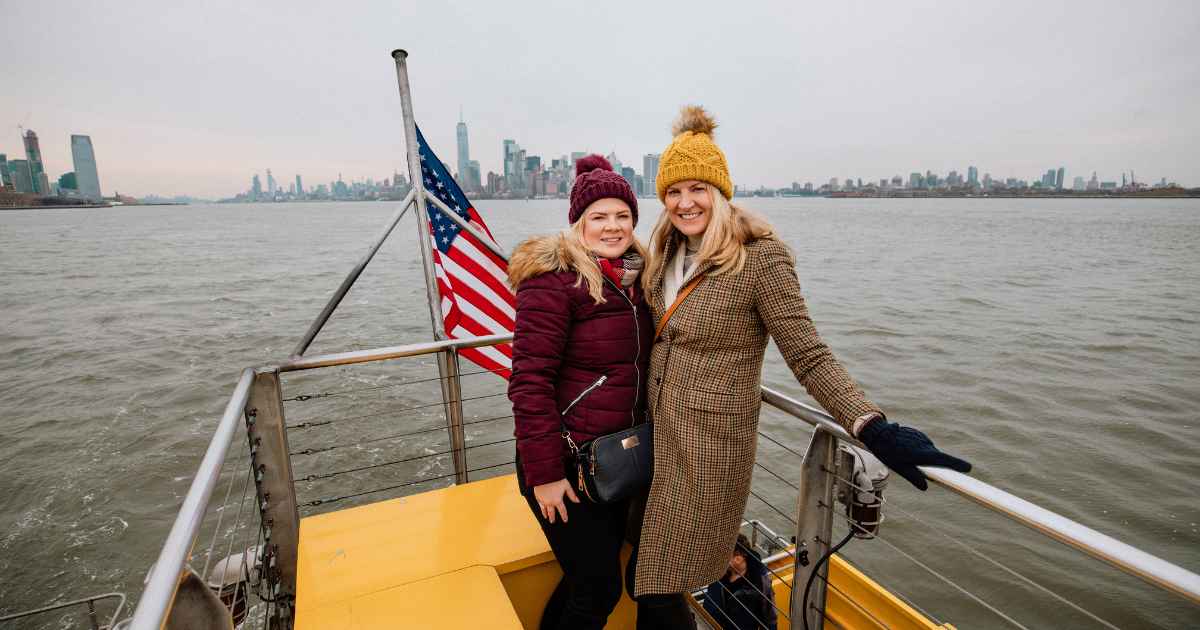
The purpose of inbound tour operators is to promote the entire destination to potential visitors from their local viewpoint. The operational advantage of being locally based is having easy access to work with other companies to promote the location as a whole to interested overseas travelers. Additionally, inbound tour operators can offer a more personalized service to their customers by having direct contact with them in their chosen destinations.
Inbound tour operators often work with other travel agents and distribution partners
Tour packages are often created and promoted by inbound tour operators in partnership with other travel agent s and travel distribution channels . Inbound tour operators work under the assumption that travelers are often motivated by package deals and promotions, and take advantage of this when marketing their destination. This means it’s beneficial for inbound tour operators to create packages that include local tourism businesses such as hotels, transportation, and tours and activities. Following that, these same packages are promoted to segments of the target market that are most likely to visit the region in the near future.
Choose an inbound tour operator if:
Working with an inbound tour operator is a good idea if you want to increase your visibility in a chosen destination. This will be increasingly beneficial if your target market shows interest in package deals.
Outbound tour operator agents
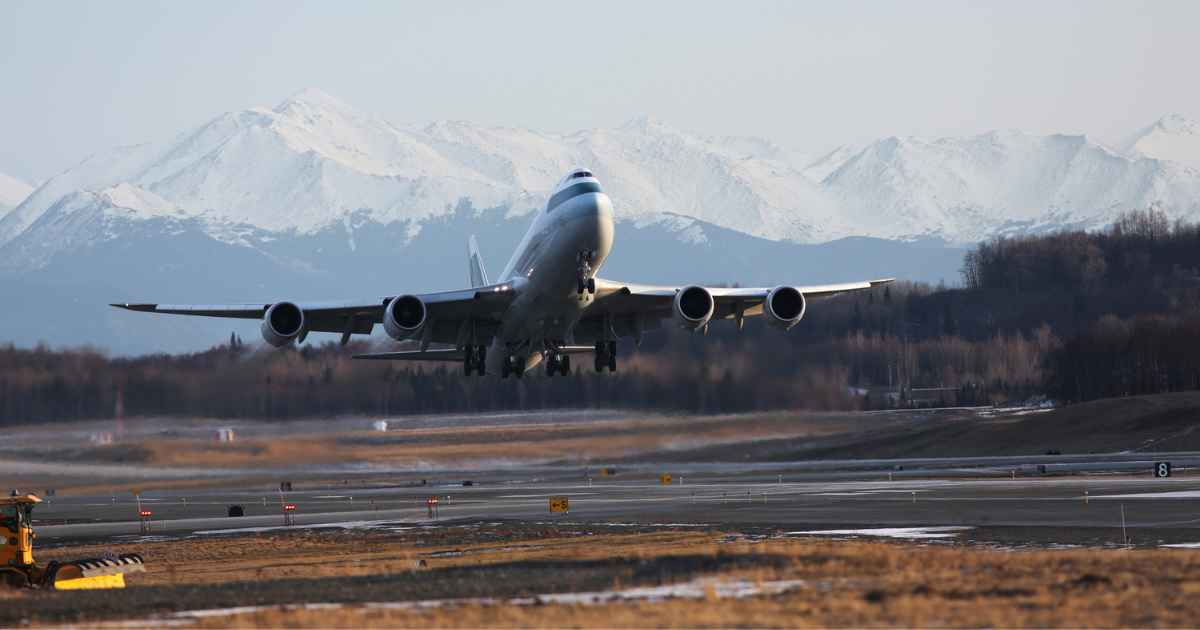
A typical outbound tour operator works with international tourists. In contrast to inbound tour operators, outbound tour operators take travelers overseas from their home country. They offer a variety of tour packages that enable tourists across borders to travel abroad easily.
Outbound tour operators contribute significantly to the destination country’s economic growth. The majority of outbound tour operators choose to focus on a specific destination. This may be a destination that is currently popular or a destination in which they have special expertise and distribution partners.
Most outbound tour operators cater to international travelers.
Outbound tour operators offer travelers the convenience of visiting another country of their choice through tour packages. When travelers book a tour with an outbound tour operator, they can get everything they need under one roof — simplifying the travel experience.
A particular region of the world is often their specialty
Outbound tour operators have the benefit of being experts in the destinations they serve. European destinations are a very popular choice with outbound tour operators; however other destinations, such as Southeast Asia and the Middle East, are growing in popularity. A successful outbound tour operator will often be very tuned-in to trends, one step ahead of the crowds, so they know which destinations to specialize in next.
Choose an outbound tour operator if:
If your business strategy includes targeting international travelers, partnering with an outbound tour operator is likely to be a good fit. Additionally, an outbound tour operator will be a good fit if you understand overseas offerings and have the ability to promote them to domestic customers.
Advantages and Disadvantages

Just like running any form of travel company, there will always be some advantages and disadvantages. before working with either an inbound or outbound tour operator, here are a few pros and cons you should consider.
Inbound tour operators
As an inbound tour operator, you’ll have the advantage of convenience. This is due to being able to operate in the same location or home country as the tours you offer. This is extremely beneficial when receiving any inquiries or questions about the tours as you’d have a greater understanding of the local area and its culture compared to outbound tour operators. Furthermore, as an inbound tour operator, developing strategic partnerships and forming great relationships with other local companies and tour and activity operators will be a lot easier and is usually encouraged.
Another major advantage an inbound tour operator has is that most of the interactions with their customers will be direct. Meaning, it will allow them to offer a more personalized experience based on their customer’s needs.
Outbound tour operators
Just like the inbound operators, outbound tour operators deal with customers from their own countries. This makes designing and creating tour packages a whole lot simpler as they can customize the tours based on the customer’s interests. However, a disadvantage outbound tour operators have is not being based on the travel destination itself. This could create problems and can be more difficult to resolve any issues that may arise.
Fortunately, outbound tour operators have the flexibility to update their products and packages based on the latest travel trends and demands. As we all know, the travel industry is highly competitive and constantly evolving. Offering outbound tours gives you the freedom to adapt to changes in the travel and tourism market swiftly.
Which one should you choose?
The key difference between inbound and outbound tour operators comes down to whether they provide tours in their home country or abroad. You should consider both types of tour operator agents when developing your distribution strategy. Partnering with these two agents will maximize your reach to both international and domestic travelers.
Now, it’s time to think about ways to make your distribution and marketing channels more effective. You can identify your key partners via your research or by connecting with a tour wholesaler . By establishing partnerships with a large tour operator network , you can advance your business — both inbound and outbound. Read our previous blog if you are looking for tips and tricks for partnering with travel agencies or download our online distribution ebook today.
In general, both types of tour operator agents play an important role in the overall success of your distribution strategy. By partnering with both of these agents, you’ll be able to maximize your reach to both international and domestic travelers.
When bookings start to come through, you’d want to ensure that you’re providing your customers with a simple booking journey. By utilizing an online booking software , you’re not only simplifying the customer’s booking journey, you’re streamlining your processes as well. This is due to advanced features that automate your processes that allow your customers to make a booking on the spot. These features include a real-time availability viewer, that allows your customers to book based on your exact availabilities. Payment gateway integrations that provide your customers with the convenience of secure online payments. And Automatic communication, which sends your customers confirmation and updates regarding their bookings.
To top this all off, you can easily manage your partnership with both outbound and inbound tour operators via an online tour operator marketplace like Rezdy Channel Manager . Rezdy’s marketplace broadens your reach to over 25,000 active resellers in the industry.
Using Rezdy Channel Manager is as simple as:
- Naming your price
- Setting your rates
- Letting resellers sell and promote your products
On top of that, you don’t have to worry about collecting payments and paying commissions as Rezdy automatically organizes payments for both parties. This reduces the need to chase your agents for payments.
Ready to capture more inbound and outbound bookings with Rezdy? Start a FREE 21-day trial or book a free demo today.
If you enjoyed this article, then make sure to sign up for our newsletter where you’ll receive the latest marketing tools and tour operator tips designed with businesses like yours in mind.
Start free trial
Enjoy 21 days to take a look around and see if we are a good fit for your business.
No obligations, no catches, no limits, nada
Distribution
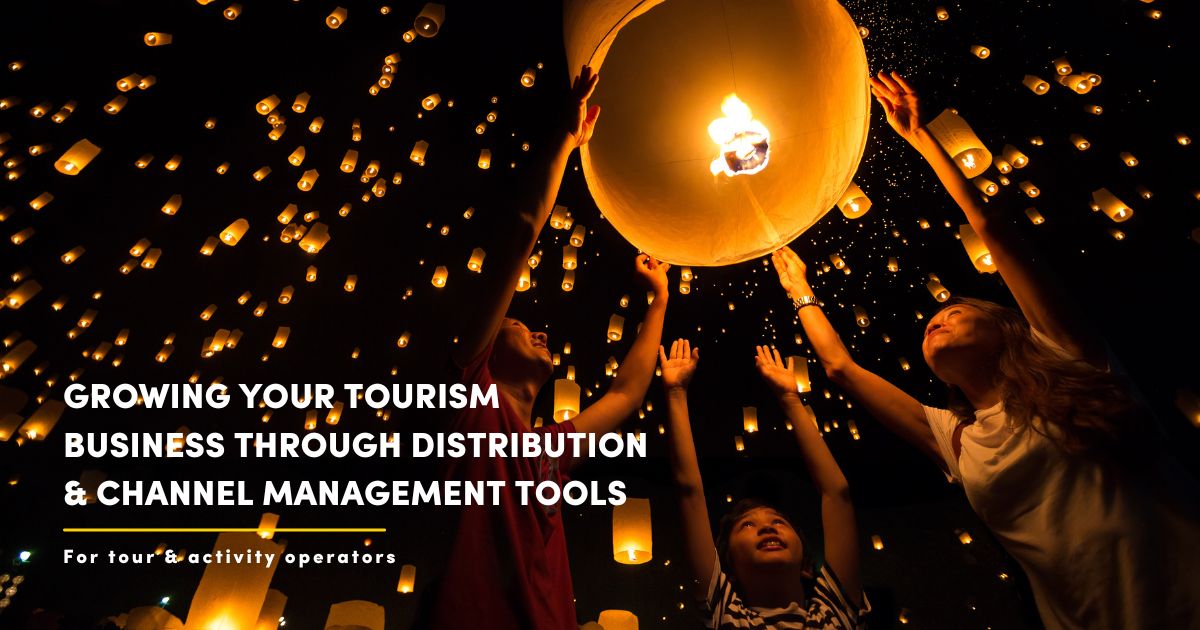
eBook: Guide to growing your tourism business through distribution & channel management tools

How to navigate API connections with resellers
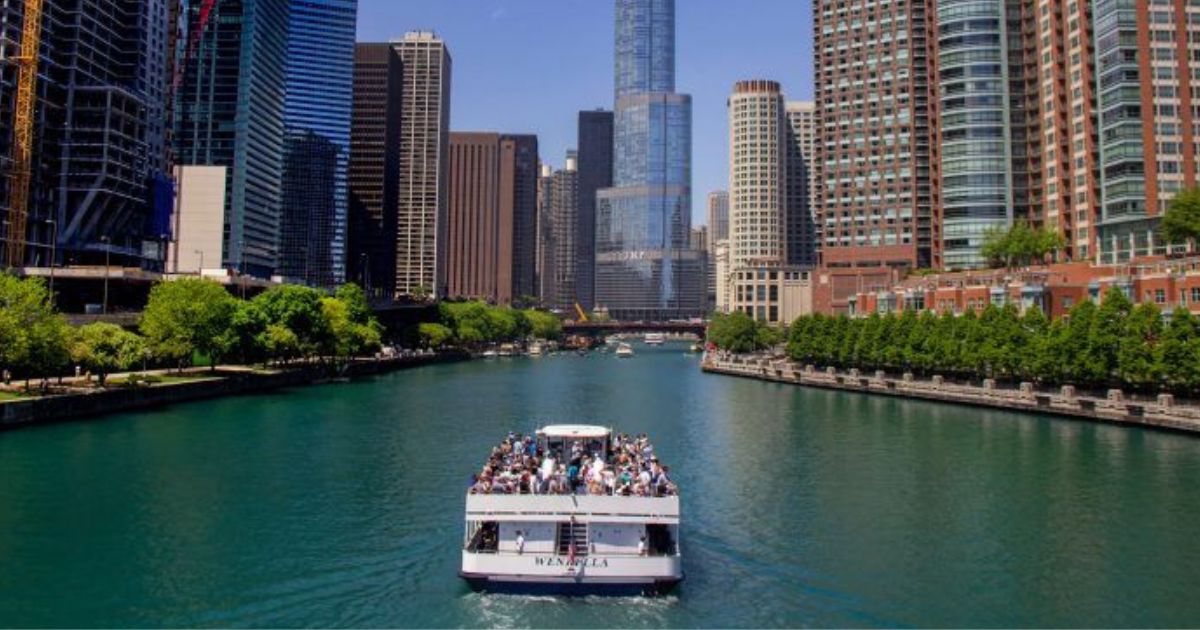
Case Study: Wendella Tours & Cruises

Why travellers should work with inbound tour operators

Thankfully, people globally are becoming more comfortable with the idea of travel . As countries open their borders, lower or remove their restrictions, people are more confident to book the overseas trips they have long missed out on. Although travel demand is steadily increasing , the disruption that the COVID-19 pandemic caused the industry is becoming more obvious. Keen travellers, who were once happy and capable of booking their own trips, are reluctant to plan and execute the travel experiences that they dreamed of in lockdown due to a variety of challenges they have not previously encountered. This blog looks at why now is the time for travellers to engage a true destination expert that they can access in the country i.e. an inbound tour operator, to plan their trip, and exactly what value they can add to travellers’ dream experiences.

The added complexities of travel
Over the last six months, the tourism industry and travellers alike have excitedly seen many countries start to open their borders , but each one has specific entry requirements, which are also frequently changing. Keeping abreast of ever changing regulations, while also making sure travellers are prepared for them, has added another layer of complexity to the overall travel planning experience.
While airlines are building up their flight routes again, it will take time for them to reach pre-pandemic levels. Hence, travellers have less options when it comes to connecting flights between two destinations as well as limited flight times to choose from. When you combine the additional entry requirements with the limited airline capacity and connections, figuring out the flights can be quite challenging and prone to errors.These are all areas where the expert knowledge of an Inbound Tour Operator becomes invaluable. Add to this the current inflated cost of flights , safeguarding the investment travellers are making in their holiday is plain old common sense.
What is an Inbound Tour Operator?
An Inbound Tour Operator is a destination expert that specialises in their own country or a niche travel experience, such as cycle tours. This means they have developed a deep understanding of the destination or niche; its culture, people and environment. They focus on creating a clear picture of what the traveller wants out of their trip. By understanding the intangible value a traveller holds within the trip, the once in a lifetime experience that is unique to their needs, wants and desires. To this end many Inbound Tour Operators have spent the entirety of the pandemic learning more about their specific destination or niche and staying on top of any new experiences that have evolved. Making them primed to craft a highly personalised itinerary for the traveller.
Here are 5 great reasons why you should work with an Inbound Tour Operator when planning your next trip:
Up-to-date on travel regulations
Inbound Tour Operators are familiar with the entry requirements to their destination and stay up to date with any changes, such as the type or timing of COVID-19 tests, that are completed before the travellers fly. This means the travellers themselves don’t have to stress about watching the news and staying on top of any last-minute changes to pre-departure testing or flights. Instead, the traveller receives all of the information they need from the destination expert who has already found a solution for any changes that have arisen.

Specialist knowledge and intimate supplier relationships
Two years is a long time to plan a dream trip, so travellers wanting to make sure they have the entire experience they have dreamed about for so long, is understandable. Many travellers are wanting to experience destinations, and the people there, in a way that reaches far beyond the usual tourist experiences. These bucket-list trips are often more complicated, with several stops throughout the destination to plan and it can be hard to find those off the beaten track activities, if they are trying to organise it by themselves.
By finding an Inbound Tour Operator who is an expert on the country, region or specific destination they want to visit, travellers are ensuring that they will enjoy a trip that meets or exceeds all of their expectations. This attention to detail will ensure the traveller will get the opportunity to experience every aspect of the destination they wish to. The travellers know the accommodation, transportation, and activities that the Inbound Tour Operator includes in the itinerary are all selected based on their criteria. These specialist tour operators build close relationships with carefully selected suppliers who provide the highest quality experiences. Most Inbound Tour Operators will only send their travellers to accommodation, transport and experiences they have personally visited. This vetting means that they are certain their travellers will be well looked after throughout their trip.
Helps travellers use their money wisely
Travellers have had limited travel opportunities in the last two years, so many have saved their money while they have waited for travel to resume. Now that tourism is restarting, a trend has emerged where travellers are willing to spend more money on a trip due to their excitement to travel again, their need for security regarding their travel arrangements and an increase in savings. Meaning travellers are also wanting their travel experiences to reflect that extra cost, which can be difficult to achieve. Travellers planning and booking trips themselves will have to navigate through multiple travel sites trying to find the best deal that offers the total experience they are looking for. By entrusting an Inbound Tour Operator with their next trip a traveller is considerably more likely to get the most value from their money and time. This is because Inbound Tour Operators are experts; they know the best places to stay, they understand optimal trip cadence and they are adept at matching the activities they recommend to the travellers’ needs and interests. It is these intimate supplier relationships, together with their expert knowledge of the country they sell, that delivers that sought after trip of a lifetime. An additional bonus for the traveller is they can see who their money is going to, so they can ensure they are using local suppliers and supporting the destination’s community.
Save your time
When planning any trip to a new destination, most diligent travellers spend hours doing in-depth research on flights, accommodation, transport and activities. They often spend time agonising over every choice to make sure they make the best decision to match the image of their holiday in their head. Sometimes, even when travellers take the most care when selecting their trip choices they are still left unsatisfied and disappointed. This is where a destination expert can offer the most value, as they save their travellers valuable time by eliminating the travellers need to research and constantly check booking sites. They can plan, organise and book the itinerary for the traveller all while taking a fraction of the travellers’ time during the process. The traveller can also put their faith into the destination expert to make decisions that best suit what the traveller wants, so that their expectations are exceeded during their trip.

Will give you peace of mind
With the added uncertainty around booking, availability, schedule changes and cancellations in the current travel environment, it can be stressful for travellers as their departure date gets closer. If something does go wrong either before or during their trip, travellers may find it difficult to find the help and support they need from the airlines, accommodation or activity providers as they are under-staffed and extremely busy trying to manage a large workload. This can lead to additional stress as it may mean completely changing flights, finding new accommodation, choosing different activities, or even being left stuck in an unknown destination.
Inbound tour operators can help resolve these problems as they have experience solving last-minute travel issues and have a deep understanding of the traveller’s needs, wants and expectations. What’s more, they are in the country. The traveller can put their full trust in the inbound tour operator, knowing that they will help at any time and with any travel situation.
By choosing to work with an inbound tour operator to plan a trip, travellers will be less stressed from the initial planning stages all the way through to when they walk back into their home after their once in a lifetime experience. This means they can enjoy every part of the process, and start the trip with a positive and relaxed mindset, which in turn should make the experience even better. After a tough two years in the travel industry inbound tour operators are excited to get back to doing what they love and sharing their passion for their chosen destination or niche. So they will be more than happy to listen to, create and book any travellers once in a lifetime trip.
Have we encouraged you to use an inbound tour operator for your next trip?
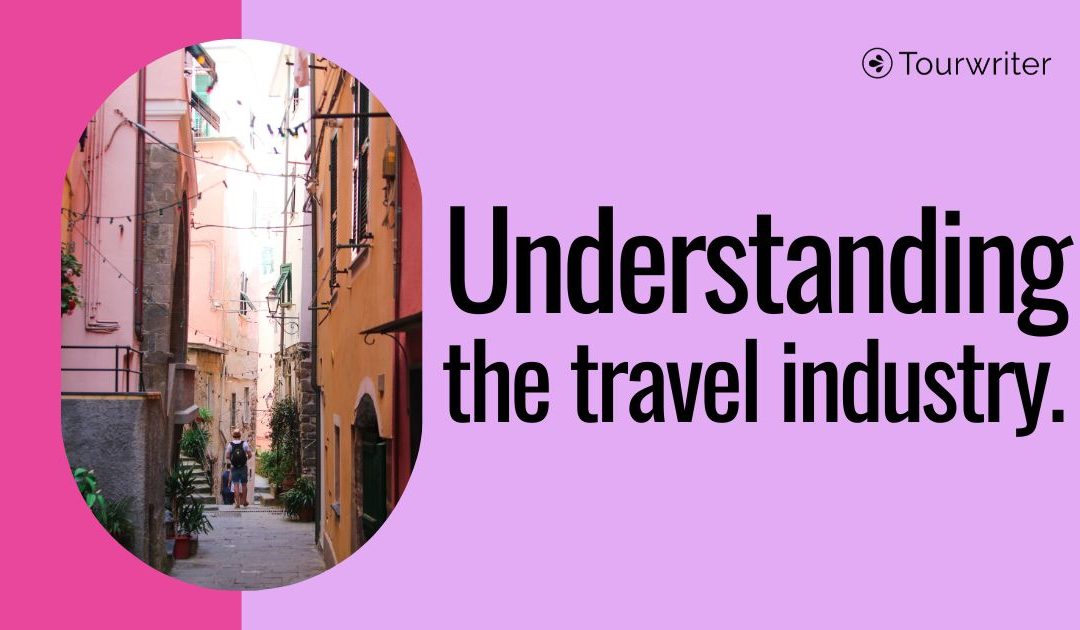
How does the travel industry actually work?
Who are the key players in the industry, where do they all fit together and how does the industry actually work?! There’s no doubt that the travel industry is a confusing space to wrap your head around so we’ve broken it down for you in this easy new resource.
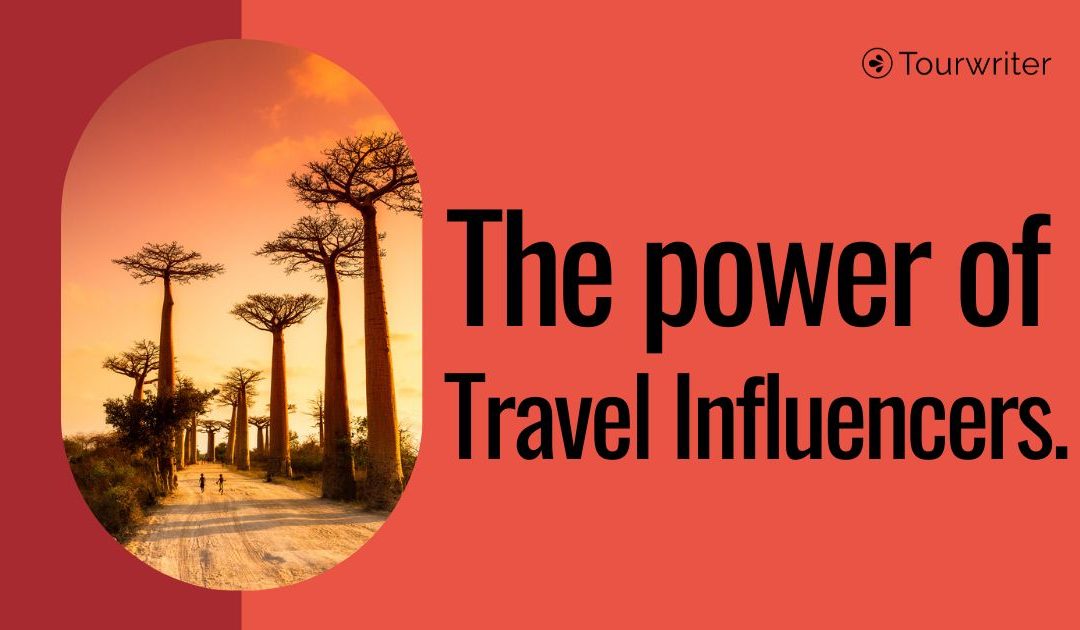
Travel designers- meet the influencers you should work with.
Understand the role travel influencers play in the industry and why tour operators should be following, interacting and collaborating with them. Explore eight global travel influencers who are inspiring travellers daily.
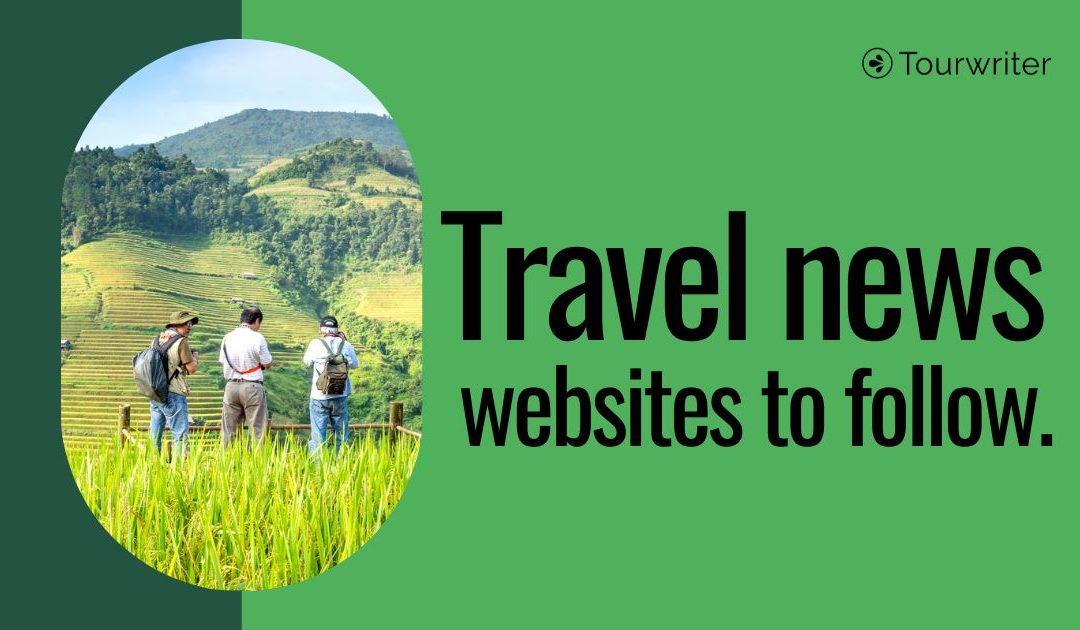
Tourism news websites you can trust
In the tourism industry it can be hard to differentiate the reliable travel news sources from the not-so-trustworthy ones. In this blog we summarise the top travel news websites that tour operators, travel agencies and DMC’s should pay attention to.

How to set your team up for success when introducing new software
Making changes happen is hard. Especially when it is something that will create a significant impact on the way you work, like new software. We discover what change management is and how it can assist you, your leaders and your team in creating new processes that will make you more successful in the long run. Is it time for a change?

IMAGES
VIDEO
COMMENTS
What is a tour operator? Tour operators are inextricably linked to the package holiday model. The tour operator is the person or organisation who creates the package. A travel agency is then used to sell the package holiday.. In the chain of distribution, the tour operator is represented by the term 'wholesaler'.This is because the tour operator is responsible for purchasing products of ...
Tour operator is an organization, firm, or company who buys individual travel components, separately from their suppliers and combines them into a package tour, which is sold with their own price tag to the public directly or through middlemen, is called a Tour Operator. More precise tour operators are primarily responsible for delivering and ...
Tour operators play a pivotal role in the tourism industry. They create and organize tour packages, catering to both business and leisure travelers. These packages simplify travel arrangements, offering hassle-free travel. Tour operators are the key architects of memorable trips, ensuring travelers can explore various destinations easily.
3. Domestic Tour Operators. Domestic tour operators organize and sell travel packages within their home country. They specialize in creating tours that showcase the best that their country has to offer. They work with local suppliers, such as hotels, transportation companies, and attractions, to create their packages.
Definition of Inbound Tour Operators; An inbound tour operator is a company that specializes in organizing tours and activities within their country, working with travel agents to create packages for international visitors. They are responsible for organizing itineraries, accommodations, transportation, and activities for incoming tourists.
A tour operator is a business that typically combines and organizes accommodations, meals, sightseeing and transportation components, in order to create a package tour. They advertise and produce brochures to promote their products, holidays and itineraries. Tour operators can sell directly to the public or sell through travel agents or a ...
Inbound tour operators are defined as businesses that welcome visitors, customers, or tourists and handle arrangements within the host nation. For instance, if TCI Ltd. arranges for a group of American tourists to go via it to India and manages the group there, TCI is referred to be an inbound tour operator. ... Domestic Tour Operators ...
While there are several different types of tour operator, the main ones include: Inbound Tour Operator. Outbound Tour Operator. Domestic Tour Operator. Ground Operator. Receptive Tour Operator. These companies can also focus on the mass market or can specialise on a niche group, such as eco-tourism, adventure sports or food tours.
Tour operators work closely with local suppliers, hotels, transportation providers, and guides to ensure that every aspect of your journey is thoughtfully planned and executed. The Benefits of Choosing a Tour Operator. Expertise and Local Insight: Tour operators possess in-depth knowledge of the destinations they offer. They have the ability to ...
Domestic Tour Operators. Domestic tour operators are those that put together inclusive tour packages and sell them to domestic travelers. In other words, they are tour operators who provide travel packages and tours within a tourist's native country. Domestic tours usually involve residents of a specific country traveling within that country.
A tour operator is a company that designs, organizes, and sells pre-packaged tours or holiday packages to travelers. Tour operators handle all aspects of the tour, including accommodations, transportation, meals, guided tours, and activities. They often work with travel agents to sell their tour packages to clients.
Domestic Tour Operators: Yet another different types of tour operators are the Domestic unit. Operating within their native land, domestic tour operators create all-encompassing travel packages ...
Domestic tourism is tourism involving residents of one country traveling only within that country. Such a vacation is known as a domestic vacation (British: domestic holiday or holiday at home). For large countries with limited skill in foreign languages, for example Russia, Brazil, Canada, Australia, United States, China and India, domestic ...
Let's see what the possibilities are. According to the UN World Trade Organization, there are three kinds of tours - domestic, inbound, and outbound - and thus three kinds of tour operators who hire tour directors. Many companies offer both domestic and outbound tours. Domestic tours involve residents of the given country traveling only within ...
4 Importance of Tour Operators. 5 Role of Tour Operators in Tourism Business. 5.1 Tour Packages Creation. 5.2 Make Travel Arrangements in Advance. 5.3 Tour Operations Budgeting. 5.4 Providing a Relaxed and Safe Tour. 6 Difference between Travel Agent and Tour Operator. However, a tour operator who has his own one or more tourist product ...
An outbound tour operator creates and markets international tours for people within their own country. Outbound tour operators usually focus on destinations, countries or regions they know well. They partner with businesses based in host countries to give their customers a high-quality, value-for-money tour experience. 3. Domestic tour operator
Domestic tour operators have a good understanding of and passion for the tourist offerings of their own country, including transportation, accommodation, tours and activities. Related: 14 ... definition and how to demonstrate. Tour operator FAQs Here are answers to some of the most commonly asked questions about working as a tour operator: What ...
3. Domestic Tour Operators. Domestic tour operators organize and sell travel packages within their home country. They specialize in creating tours that showcase the best that their country has to offer. They work with local suppliers, such as hotels, transportation companies, and attractions, to create their packages.
According to a recent report published by the World Travel and Tourism Council (WTTC), domestic tourism accounts for 73% of total Travel and Tourism spending globally in 2018; thus it is a key driver of the tourism sector. Countries rely on domestic tourism as a tool to reduce poverty, improve infrastructure, generate employment and most ...
Domestic tour operators form relationships with other travel service and activity providers to create unique experiences for travellers in order to attain a larger share of the Domestic Tourism market. Inbound Tour Operators or Incoming Tour Operators handle all activities and arrangements for the tourists in the host country. The packages are ...
2. Impeccable customer service. The cornerstone of any successful tour operator is exceptional customer service skills. The tourism industry thrives on creating memorable and positive travel experiences, and this begins with outstanding communication skills and a commitment to customer satisfaction. From the very first inquiry to the post-trip ...
Inbound tour operator agents. An inbound tour operator, also known as a destination management company, is a locally-based business or individual that provides holiday planning. This includes itinerary planning and arrangement of payment for their overseas clients. Inbound tour operators deal with both individuals and groups of international ...
Inbound tour operators can help resolve these problems as they have experience solving last-minute travel issues and have a deep understanding of the traveller's needs, wants and expectations. What's more, they are in the country. The traveller can put their full trust in the inbound tour operator, knowing that they will help at any time ...